Божидар Никић
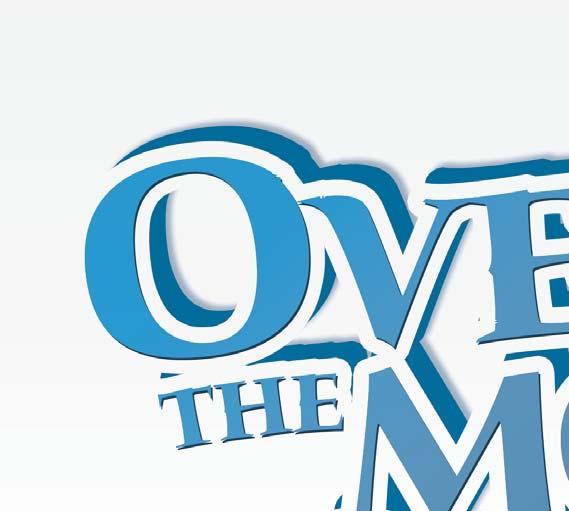







Божидар Никић
OVER THE MOON 7
РАДНА СВЕСКА
ЕНГЛЕСКИ ЈЕЗИК ЗА 7. РАЗРЕД ОСНОВНЕ ШКОЛЕ
Главни уредник Проф др Бошко Влаховић
Одговорни уредник Доц. др Наташа Филиповић
Предметни уредник Наталија Кантар
Рецензенти Лара Штамбук, професор енглеског језика и
, ОШ „Милан Ђ Милићевић”, Београд
,
„Доситеј Обрадовић”, Београд
Дизајн
Иван Танић, Агенција Мани два
Илустрације
Младен Анђелковић
Лектори
Шила Мекгрегор Ковачевић
Наталија Кантар
Издавач
ЕДУКА д.о.о. Београд
Ул. Змаја од Ноћаја бр. 10/1
Тел./Факс: 011 3287 277, 3286 443, 2629 903
Сајт: www.eduka.rs; имејл: eduka@eduka.rs
За издавача Проф др Бошко Влаховић, директор
Штампа
, Суботица Издање бр.: 1, Београд
,
COBISS.SR-ID 15528201










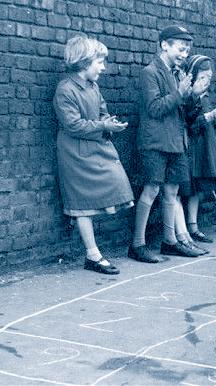





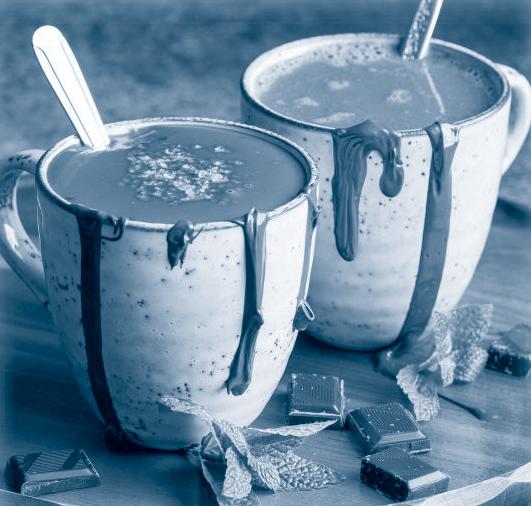

















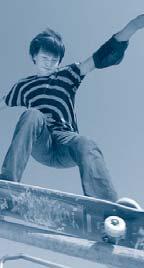



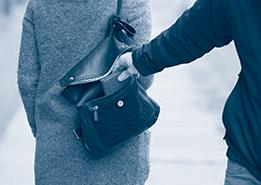
















1 Write the words.

















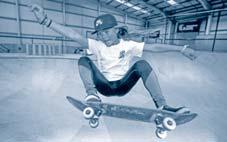




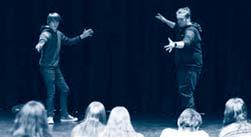
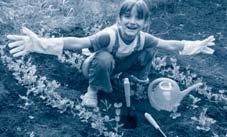



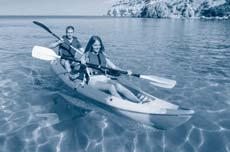

2 Complete the sentences with the words in the box. least throughout open membership special opportunity such Youth offers weekdays
1 Westgate _______ Club is _______ to all young people aged 8 to 19.
2 It _______ a wide range of indoor and outdoor activities _______ the year
3 This summer we are organizing some _______ activities, _______ as hiking and canoeing.
4 Don’t miss the _______ to take part in at _______ one of them!
5 We’re open on all _______ from 5 to 9 p.m. and on Saturdays from 10 a.m. to 6 p.m.
6 There are no _______ fees!

3 3.01 Complete the dialogue with the missing words. Then listen and check.
Chloe: Good afternoon! I would like to ________ (1) the youth club.
Receptionist: OK. What is your first ________ (2)?
Chloe: Chloe.
Receptionist: And your ________ (3) name?
Chloe: Wright.
Receptionist: Sorry, how ________ (4) you spell that?
Chloe: W-R-I-G-H-T.
Receptionist: Thank you. Now, can you tell me your ________ (5) of birth?
Chloe: It’s the second ________ (6) August, two thousand and eight.
Receptionist: What is your ________ (7)?
Chloe: It’s 74 Woodland Gardens.
Receptionist: Have you got ________ (8) email address?
Chloe: Yes, it’s chloe_wright2828@dmail. com.
Receptionist: And can I have your mobile phone number, ________ (9)?
Chloe: Sure. It’s 076489901235.
Receptionist: So, which of our classes or activities would you like to ________ (10) part in?
Chloe: I’d ________ (11) to do karate.
Receptionist: Good choice! Your first class will be ________ (12) Thursday at 7.
Chloe: Thank you and see you then! Good-bye!






B4 Complete the sentences with the missing words.
1 Marseille is a city in F_________.
2 The capital of Denmark is C_________.
3 Jack is A___________. He was born in New York.
4 Rembrandt was a famous D___________ painter.
5 The P_________ word for ‘moon’ is lua.
6 I’d like to study in Vienna, but I first have to learn G___________.
7 My dad is going to Beijing again, but I’ve never been to C___________.
8 My grandma lived in Budapest for 25 years. That’s why she speaks H___________ so well.

5 Complete the sentences with the Present Simple or the Present Continuous of the verbs in the box.
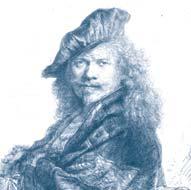
1 Please be quiet! I ___________ to concentrate.
2 This book ___________ to me. I think it’s Peter’s.






say wear (x2) spend not believe try talk study not belong lie
3 I can’t hear what you ___________. Everyone ___________ at the same time.
4 John usually ___________ glasses, but today he ___________ contact lenses.
5 My sister hardly ever ___________ for tests, but she ___________ at least three hours on her phone every day
6 I ___________ you. I think that you ___________ to me.

6 Complete the pairs of sentences using the given verbs in the Present Simple or the Present Continuous.
1 have
This party is great! We __________ a really good time!
My uncle __________ a beautiful new car.
2 get
I don’t like running. I __________ tired after five minutes.

Hurry up! It __________ dark! We need to get home before 7.30!
3 cry
Why _____ the baby _____? Is he hungry? _____ your baby brother usually _____ at night?
4 think
What _____ you _____ of our new art teacher?
You look sad today. What _____ you _____ about?
7 Complete the dialogue. Use ONE word in each gap.
Tim: Hi, Ellie! 1________ you doing your homework?
Ellie: You know I never 2________ my homework after school. I’m chatting to my cousin Phoebe on Skype.
Tim: Really? Where 3_________she live?
Ellie: In London, but she is in the United States at the 4 ________.
Tim: 5________ is she doing there?
Ellie: Her dad is 6________ journalist. He is actually interviewing a very famous actor today.
Tim: Wow! 7_________ is this famous actor?
Ellie: I don’t 8_________ yet. She’s typing his name now! It’s…










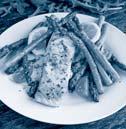




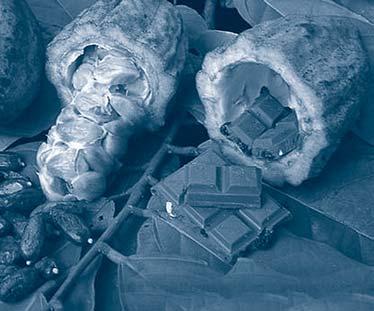





1 Put the sentences in the correct order. The first one is done for you.
When the first Spanish explorers came to Mexico in the early 16th century, they discovered chocolate, but they didn’t like its bitter taste.
However, it was only in 1847 that the first solid chocolate bar was made by an English company.
They used the seeds from the cocoa tree to make a spicy, bitter drink called ‘xocolatl’.
They brought it back to Spain and sweetened it by adding sugar.
1 The first people who made chocolate were some of the ancient civilizations of Mexico and Central America, including the Aztecs and the Maya.
A few decades later the Swiss created the first milk chocolate.
The Spanish kept it a secret for over a century before it reached the rest of Europe, where it soon became a very popular drink.
Cocoa beans were so precious that they were used as money and only the rich could afford to drink chocolate.

2 Complete the sentences with the words in the box. undoubtedly flavour contain reach manufacturers plain
1 Which _____________ of ice cream do you prefer – chocolate or vanilla?
2 Toyota from Japan is one of the biggest car _____________ in the world.
3 Fresh fruit and vegetables _____________ lots of vitamins and minerals.
4 I would like _____________ rice with no sauce or seasoning.
5 This is _____________ the best restaurant I’ve ever been to. The food is simply amazing!
6 We’re now in Vienna, so we won’t _____________ Belgrade until eight or nine o’clock.

3 Write the missing words.
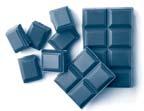
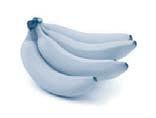

4 Choose the odd one out.
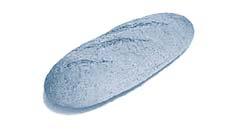
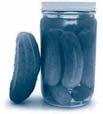
1 a cup of tea / coffee / lemon / hot chocolate
2 a slice of meat / flour / bread / pizza
3 a jar of marmalade / honey / pumpkin / peanut butter
4 a can of tuna / cucumbers / sardines / beer
5 a bunch of bottle / flowers / grapes / keys




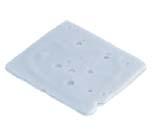
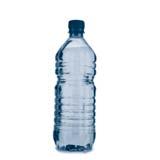
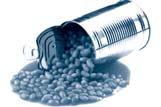
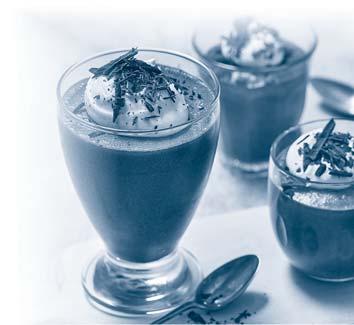
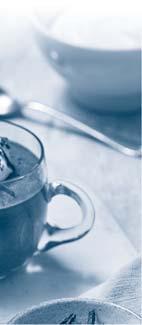






B5 Put the words in the correct order to make sentences.
1 not / wood / built / house / this / of / is
2 in / are / sandals / summer / usually / the / worn
3 is / beach / close / hotel / the / to / located / the
4 served / the / early / breakfast / morning / is / in ________________________________.
5 day / rooms / every / are / the / cleaned

6 Complete the text with the present passive form of the verbs in brackets.
After the cocoa beans 1______________ (ship) to chocolate manufacturers, they 2______________ (first clean) and roasted. The shell 3______________ (remove) and the pieces that remain 4 ______________ (grind). The result – chocolate liquor –5______________ (use) to make chocolate or 6 ______________ (further process) for cocoa butter and cocoa powder. The last steps in chocolate-making 7 ______________ (call) ‘conching’ and ‘tempering’. The chocolate 8______________ (mix) in a large machine and 9______________ (later cool) and then heated again.

7 Rewrite the sentences in the passive.
1 They eat a lot of raw fish in Japan. ________________________________.
2 They don’t grow cocoa beans in Europe. ________________________________.
3 They make these toys of plastic. ________________________________.
4 Does somebody update the website every day? ________________________________.
5 They don’t manufacture Ferrari cars in Serbia. ________________________________.
6 Do they speak English and French in Canada? ________________________________.

8 Complete the sentences with the present passive form of the verbs in brackets and the words in the box.
mechanics garden gardeners hospitals factories
1 Patients ____________ (treat) in __________.
2 Fresh vegetables ____________ (pick) from the __________.
3 Grass ____________ (cut) by __________.
4 Cars ____________ (not make) on farms. They __________ (produce) in __________.

9 Complete the sentences. Use the present passive and choose the correct words.
1 Wine ______________ (make) from __________.
a) apricots b) grapes c) blueberries
2 Chips ________ (call) ‘French ________’ in the USA.
a) toast b) fries c) crisps
3 A lot of coffee ______________ (grow) in ________.
a) Brazil b) the USA c) Canada
4 Chopsticks ______________ (not use) for eating ________.
a) rice b) noodles c) pizza
5 The best chocolate ______________ (produce) in ________.
a) England and France b) Spain and Finland c) Belgium and Switzerland repair)
5 Cars ____________ (not fix) by doctors. They ____________ (repair) by __________.
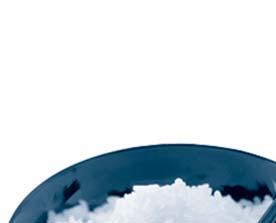

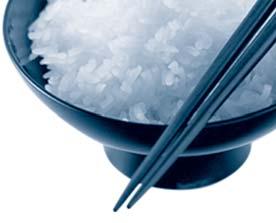




10 Look at the photos and complete the crossword. What’s the mystery word?
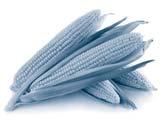
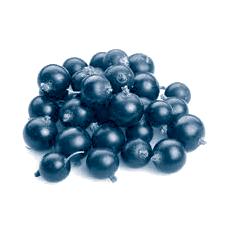
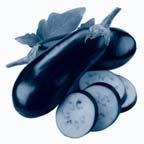

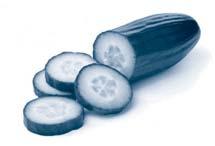
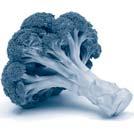
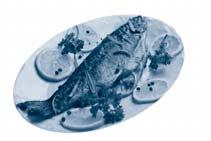
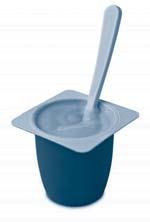
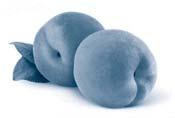




11 Which food group do these foods in the table belong to? Write the words in the box and then add more words to the list. Fruit Vegetables Dairy products Meat & Fish Grains 1

12 Choose the correct words.

1 There are thirteen different proteins / vitamins / nutrients that your body needs to survive.
2 The best sources of vitamin D / protein / minerals in your diet are found in animal foods such as meat, fish and eggs.
3 Bread and vegetables are rich in carbohydrates, but fruit / meat / rice contains none.
4 Breakfast / Lunch / Dinner is the most important meal of the day.
5 It is very important to eat a lot of snacks / not to eat any chocolate / to have a balanced diet

13 3.02 Listen and choose the odd one out in each column.


14 Complete the sentences with the words in the box. some any little few lot no plenty
1 A __________ of young people don’t eat healthily.
2 Very __________ parents cook every day.
3 There are also __________ of healthy snacks, such as nuts or cereal.
4 If you buy __________ juice, you should choose only 100% fruit juice which has __________ added sugar.
5 If you are hungry, don’t eat __________ sweets or crisps because they have __________ nutritional value.

15 Correct the sentences.
1 What did you have for a lunch?
2 Vegetables are full of the proteins and minerals.
4 I’ve got a little money left, so we can’t buy absolutely anything.
5 My dad is a architect. He has designed a lot houses and buildings.
6 I’d like an information about the courses at your school.



Read the recipe and choose the correct words.



3 Not much children like vegetables and very little of them eat more than one portion a day



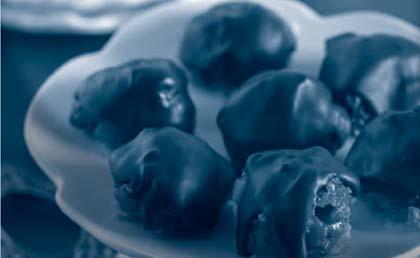
dark chocolate Melt 1a / some butter on low heat. butter Grate 100 g of dark chocolate and apricots it to the melted butter. Cut 3few / a few ginger into small pieces and 4grate / bake some fresh ginger. French cognac 5Boil / Add the apricots and ginger to the chocolate mixture.

6Fry / Pour two tablespoons of French cognac and 7stir / grate well. Slowly 8pour / melt the mixture into paper or aluminium moulds and let it cool before putting it in the fridge.


Crosstheincorrectwords C
17 Cross the incorrect words.

1 Have you been to _________ foreign countries? a) any b) lots of c) much
2 I want to go to the party because _________ people I know are going. a) few b) a few c) several
3 I’m afraid there isn’t _________ coffee left. I’ll have to go and buy some. a) much b) no c) any
4 There are _________ of good restaurants in this area. a) plenty b) lot c) lots
5 Unfortunately I can’t afford to pay for this as I have _________ money left. a) little b) a little c) no


18 Put the words in the box in the correct columns.

chocolate brownie green beans turkey fillet in mushroom sauce chamomile tea
beef lasagne apple, lime and ginger smoothie baked potatoes lemon cheesecake

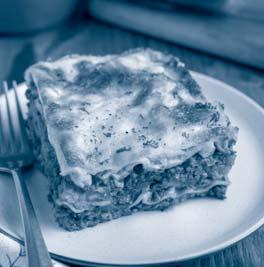









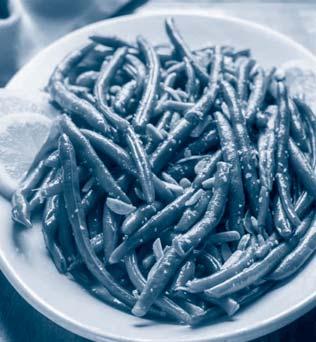

Waitress: Are you ready to order?
Waitress: And for the main course?








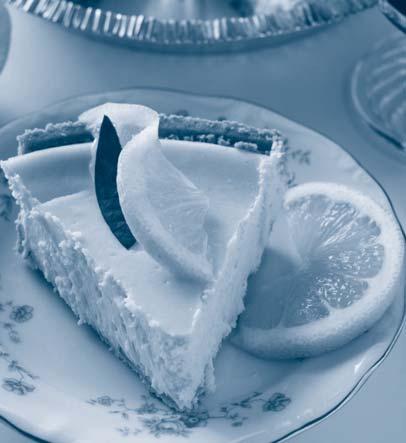
19 3.03 Complete the dialogue with the words in the box. Then listen and check. ’ll ’d enjoy recommend anything bill today’s delicious pay sounds
Man: I think so. For the starter, I 1___________ like the vegetable soup, please.
Man: Is there anything you would 2___________?
Waitress: Turkey fillet in mushroom sauce is 3___________ special.
Waitress: What would you like to drink?
rages Mains l. oes, e,

Man: That 4___________ good. I’ll have that and baked potatoes, please.
Man: I 5___________ have an apple, lime and ginger smoothie, please. ***
Waitress: Did you 6___________ your meal?

Man: Oh, yes, it was 7 ___________.
Waitress: Would you like 8___________ for dessert?
Man: No, thanks. Could I have the 9___________, please?
Waitress: Of course. How would you like to 10___________?
Man: Cash.

20 Complete the sentences so that they are true for you.

1 I always feel comfortable in ________________________________________________________.
2 ____________________________________________________________________ sounds great.
3 I love _________________________________ ________________ because it tastes so good!
4 I think _____________________________________________________________ looks amazing!
5 I almost never eat ___________________________________ because it smells / they smell awful.






GF21 Complete the sentences with the passive form of the verbs in brackets. Then match the festivals with the sentences.

1 All the tomatoes must be crushed before they ______________ (throw) so that no one gets hurt.
2 Over 20 tonnes of watermelons ______________ (donate) by local farmers for this event.
3 It _____________ (hold) in February in the town of Menton on the French Riviera.
4 Every year new unusual dishes ______________ (introduce).
5 There is a contest in which the world’s best pizza maker ______________ (choose).
6 When the full moon appears, lanterns ______________ (light) and round pastries known as ‘mooncakes’ ______________ (eat).
A Hokitika Wildfoods Festival
B Moon Festival
C Pizzafest
D Chinchilla Melon Festival
E Fête du Citron (Lemon Festival)
F La Tomatina

(eat)

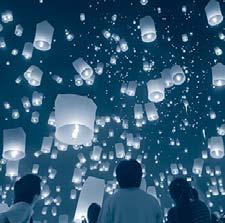


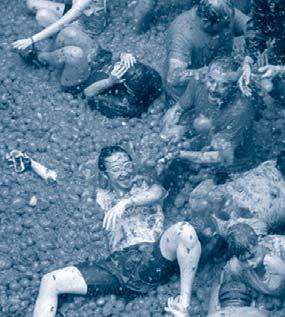
22 Make the nouns using the verbs in the box. attract create organize select inform celebrate
2 Christmas is a ______________ of the birth of Jesus Christ.
3 The statue of David is one of Michelangelo’s greatest ______________.
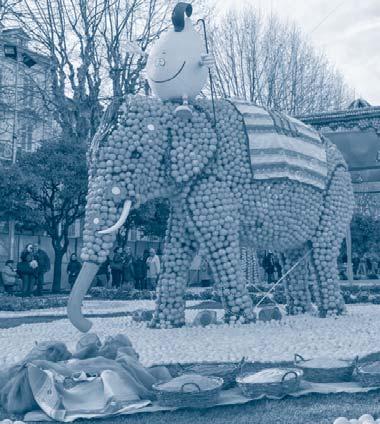






1 On this website you can find all the ______________ about the ______________ of the festival.
4 Some of the major tourist ______________ in London include Buckingham Palace, Tower of London, Westminster Abbey and St. Paul’s Cathedral.
5 This restaurant offers a ______________ of popular local dishes as well as a wide variety of international dishes.

23 3.04 Read the report. Correct the mistakes and complete the missing words. Then listen and check.
A group of ten students took place in a survey 1___________ eating habits. 50% of them have a homemade meal every day. Everybody buy fast food every week, but very few of them have 2 ___________ least two portions of fruit and vegetables a day.
Almost all a students drink a few glasses of water a day. Nobody drinks only one glass and very
3___________ of them drink at least a litre. More then half of the pupils eat fish once 4 ___________ week. A few of them eat fish once a month, but few eat it twice or three time a week.
Most students usually talk to their family 5___________ eating. A few of them watch TV, but nobody text friends while having a meal.









the crossword.
What’s the mystery word?




Look at the photos and complete
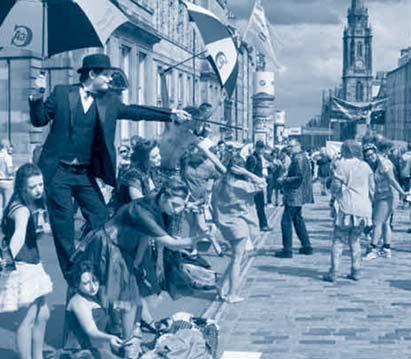




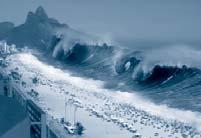





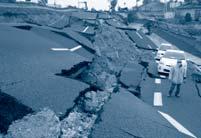



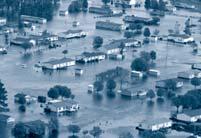


2 Choose the correct words.
1 There was no rain for four months and a lot of crops were destroyed. It was one of the worst __________ in the region.
a) floods b) tsunamis c) droughts
2 Mount Fuji in Japan is a __________.
a) tornado b) hurricane c) volcano
3 In 2004 the Sumatra coast in the Indian Ocean was hit by an __________ that measured 9.15 on the Richter scale.
a) eruption b) earthquake c) avalanche
4 In 2005 The Gulf Coast in the US was struck by __________ Katrina. Thousands of houses were destroyed and a lot of people were killed. a) Hurricane b) Flood c) Volcanic eruption

3 Match the words with their definitions.
1 dam A the grey powder that remains after something has burnt
2 tomb B a large stone structure where a dead person is buried
3 ash C a substance that is burnt to produce a strong, but pleasant smell
4 estate D a wall built across a river to stop the water from flowing
5 incense E a large area of land in the country, usually with a very big house on it

4 Complete the sentences by using the correct form of the words in CAPITALS.
1 The Greek Parthenon is an example of classical ____________. ARCHITECT
2 The Etruscans were ____________ traders who built a number of cities. SUCCESS
3 The city was rebuilt after the ____________ of the war DESTROY
4 Around 2,000 years ago the Roman Empire was at the ____________ of its power HIGH
5 Phosphorus was ____________ discovered by Brandt in 1669. ACCIDENT
6 For about 300 years after the Norman ____________, English was only spoken by lower classes. CONQUER



5 Match the sentence beginnings (1–6) with the correct endings (A–F).
1 Herculaneum was discovered in 1738 and A numerous times throughout history
2 Pompeii was probably founded in 7th century BC B were filmed in Petra.
3 Troy is another lost city which was first excavated C as a tomb of a Nabataean king.
4 The city was destroyed and rebuilt D Pompeii was found ten years later.
5 The Treasury at Petra was carved in the 1st century E in the 1870s.
6 Several scenes from movies, including F by the Oscans. Indiana Jones and the Last Crusade,

6 Write sentences using the past simple passive.
1 Britain / conquer / the Romans / 43 AD ________________________________.
2 Notre-Dame / Paris / not complete / until 1345 ________________________________.
3 The Lord of the Rings books / write / J. R. R. Tolkien ________________________________.
4 The first English dictionary / publish / 1604 ________________________________.
5 The first Olympic Games / hold / Greece / 776 BC ________________________________.

7 Complete the text with the past simple passive form of the verbs in the box.
destroy build design kill burn demolish call make
On 2nd September 1666 a fire started in a small bakery in London and as a result most of the city 1______________ down. The fire was so big that it 2______________ the Great Fire of London.
One of the main reasons the fire spread so quickly across the city was to do with the way the houses 3______________ – most of them 4 ______________ from wood and they were very close together.
0 w d eg
Luckily, very few people 5______________ in the fire, but more than 13,000 houses 6______________. The most famous building destroyed by the fire was St Paul’s Cathedral. Its ruins 7______________ and construction of a new cathedral began in 1675. It 8______________ by famous architect Sir Christopher Wren.

8 Rewrite the questions in the passive. Then choose the correct answers.
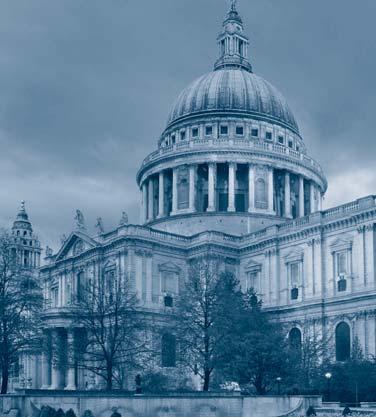



1 Who discovered penicillin? Who ________________________ by? a) Marie Curie. b) Charles Darwin. c) Alexander Fleming.
2 When did they make the first contact lenses? ______________________________________? a) In 1887. b) In 1912. c) In 1945.
3 Who invented the world wide web? ______________________________________? a) Bill Gates. b) Tim Burners-Lee. c) Alexander Graham Bell.
4 Where did they install the first traffic lights? ______________________________________? a) In London. b) In Paris. c) In New York.
5 When and where did they take the first photo? ______________________________________? a) In 1826 in France. b) In 1854 in Italy. c) In 1871 in England.



9 Write the missing words.
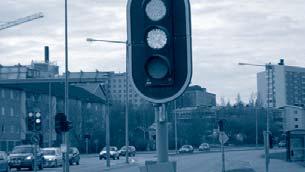






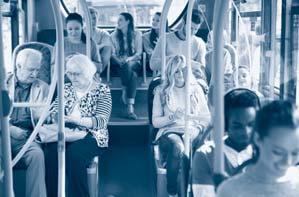



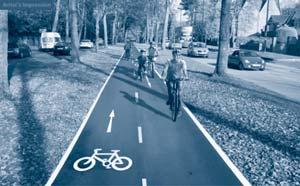


10 Match the words to form compound nouns.
1 traffic A park 2 car B station
zebra C crossing
petrol D jam
rush E hour

11 Choose the correct words.


1 One of the advantages / disadvantages of living in a big city is that there are plenty of things you can do.
3 The Johnsons moved to the suburbs / centre because it was more peaceful and they could afford to buy a house there.


2 My grandparents used to live in a beautiful skyscraper / cottage in the countryside



4 The house is close to the city centre and all the shops, which is very crowded / convenient
5 My grandfather found a job / retired last year. He says he still needs / misses the people he used to work with.
6 I want to move to the village because there is too much noise and pollution / entertainment in the city
7 I took up / out aikido two months ago and I have to say I really enjoy doing it.
8 At weekends I like hanging on / out with my friends, reading and travelling.
9 We got stuck in a traffic jam / traffic lights because cars were moving extremely slowly during rush hour.

12 3.05 Listen and repeat. wrong wind wrap swim answer was write two sword anyway wrist

13 Listen again. Circle the words in which the letter ‘w’ is silent. 3.06 Listen and check.




14 Put the words in the correct order to make sentences or questions.
1 to / times / week / go / used / three / she / a / swimming _______________________________________________________________________________.
2 computer / anymore / be / I / not / used / but / into / am / games / to / I _______________________________________________________________________________.
3 were / to / cartoons / you / did / little / watch / use / of / you / when / lots _______________________________________________________________________________?
4 now / did / he / does / but / to / music / listen / not / rock / he / to / use _______________________________________________________________________________.
5 you / parents / to / when / use / you / seven / take / school / were / did / your / to _______________________________________________________________________________?

15 Correct the mistakes. There is one mistake in each sentence.
1 David use to go hiking a lot when he lived in Scotland, but he doesn’t anymore.
2 Kitty is the girl who parents bought a thatched cottage in the countryside.
3 There didn’t used to be any cycle lanes in my town when my parents were young.
4 The person which writes the best essay will win a prize.
5 Did you use eat a lot of sweets when you were a child?

16 Complete the sentences with the correct form of used to and the verbs in the box. see drive share be not wear
1 Jack ___________________ a room with his brother, but now they each have their own room.
2 My mother ___________________to work, but now she doesn’t have to because she works from home.
3 My father ___________________suits, but now he has to because he works in a bank.
4 There ___________________ more houses in my street, but now there are mainly buildings.
5 ________ you ____________ your friends more often when you lived in a small town?

17 Match sentence halves using who, which, where or whose.
bs gotopray.
1 An archaeologist is someone _____ A people go to pray.

2 Japan is a country _____ B parents have died.
3 An avalanche is a large amount of snow and ice _____ C studies objects from the past.
4 Johann Ludwig Burckhardt was a Swiss traveller _____ D earthquakes often occur
5 An orphan is a child _____ F falls down a mountain.
6 A temple is a building _____ G rediscovered Petra in 1812.

18 Complete the sentences with your own ideas.
1 A true friend is someone who _________________________________________________.
2 I used to have lots of ________________________________________________________.
3 ___________________________________ is a sport which isn’t so popular in my country.
4 I didn’t use to __________________________________________________, but now I do.
5 I know someone whose birthday ______________________________________________.







FE19 3.07 Match the sentences with the responses and complete the gaps with the missing words. Then listen and check.
1 The only thing teenagers seem to be interested in these days is looking at one screen or another
2 Teachers were much more respected than they are now, don’t you think?
3 They just text each other and share so much information online with friends and even strangers.
4 When I was young I used to go to school on foot.
5 I guess it just shows how old we are.
A I couldn’t agree _______. And not only do they spend most of their time on social media, but they are also too lazy to walk.
B Now, I totally _______ with that. I don’t think we’re old at all.
C Absolutely. _______ many teenagers today, we used to listen to our teachers and parents.
D You’re _______. The only screen we had was the TV, but we didn’t spend a lot of time watching it.
E Yes, but you _______ to live in a small town.

20 Choose the correct words.
1 I’ve got a / some good news for you – I’m moving to Spain next month.
2 I found a lot of information / informations about this topic on the Internet.
3 The police is / are investigating the case, but they haven’t made any arrests yet.
4 Let me give you an advice / a piece of advice – you have to work hard if you want to succeed in life.
5 There was no lift, so I had to carry the luggage / luggages all the way up to the fifth floor.

21 Choose the correct answers.
1 There are ______________ native English speakers in the world. a) about 100 million b) over 300 million c) over 1 billion
2 The Angles, Saxons and Jutes invaded Britain in the ______________ century. a) first b) third c) fifth
3 For about 300 years in the Middle Ages English was the language of the ______________. a) lower classes b) upper classes c) Church
4 The words be, house, water, man and woman come from Old______________.
a) English b) Norse c) French
5 The printing press was invented in _______________ by Johannes Gutenberg around 1440. a) France b) Germany c) England

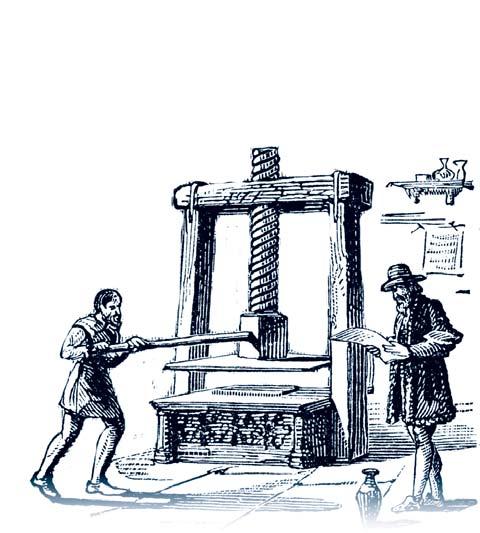
22 Which countries do these words come from?

Match the countries with the words.
1 Germany A boomerang, kangaroo, dingo
2 India B macaroni, piano, villa
3 France C sushi, karate, ninja
4 Italy D kindergarten, waltz, rucksack
5 Australia E ballet, parachute, menu
6 Japan F shampoo, cheetah, jungle



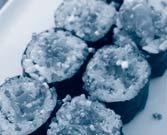




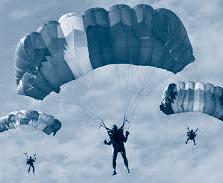







G23 Write the underlined numbers in words.

1 Queen Elizabeth II was born on 21st April 1926. ____________, _________________________
2 The mansion was sold for $2,500,000. _________________________
3 Over 1⁄ 3 of the world’s population lives in China and India.
4 About 70% of teens use more than one social media site. _________________________

24 Read the interesting facts and complete the gaps with the words in the box.
quarter two eight fifty four hundred and fifty four thousand
1 Approximately one new word is added to the English language every _____________ hours and about _____________ new words are added to the English dictionary every year
2 A _____________ of the world’s population speaks at least some English.
3 English is the official language in more than _____________ countries.
4 ‘E’ is the most commonly used letter in the English language. In fact, as many as one in _____________ of all the letters written in English is ‘e’.
5 There was no word for the colour orange in English until about _____________ years ago.

25 Complete the sentences with the names of famous London landmarks.

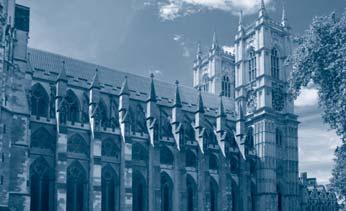


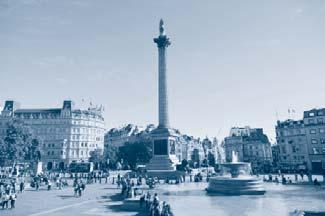

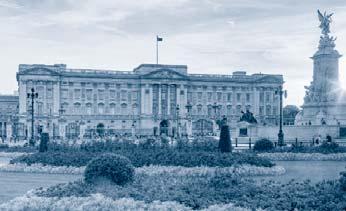





1 _________________ is not actually the name of the clock or the tower. It is the name of the bell which is inside the clock.
2 _________________was built by Edward the Confessor and William the Conqueror was crowned in it in 1066.
3 _________________ is the tallest building in London and the United Kingdom.
4 _________________, which is the official London residence of British monarchs, has 775 rooms.
5 At the centre of _________________is Nelson’s Column, which is guarded by four huge lion statues.
6 _________________, which was built by William the Conqueror, used to be a prison. Today it houses the Crown Jewels and is open to the public as a museum.

1 Find thirteen more words for food. 2 Match the synonyms.





1 choice A because of 2 huge B giant
3 flavour C selection
4 stunning D taste
5 due to E beautiful

3 Complete the missing words.

1 The palaces of the Minoan Civilization were destroyed almost 150 years after the volcanic e__________.
2 There are around 400 kilometres of cycle l__________ in Amsterdam.
3 In 2016 Ecuador was struck by an e__________ measuring 7.8 on the Richter scale.
4 Tom gave Kirsty a b__________ of flowers for her birthday.
5 Foods rich in c__________ include bread, pasta, potatoes and rice.

4 Choose the correct words.

1 Turn right at the traffic jam / lights.
2 I love the sour / savoury taste of lemon.
3 It’s very difficult to find a parking space in the suburbs / city centre
4 I bought two bars / loaves of bread.
5 The village was cut off by tsunamis / floods


5 Write the American English words.
shop
6 Complete the crossword with the words for indoor and outdoor activities. What’s the mystery word?
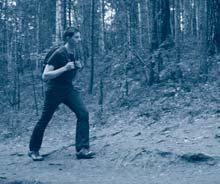


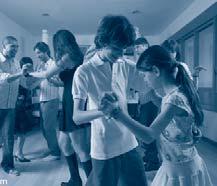


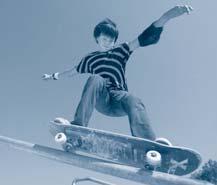




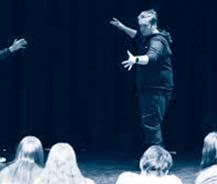
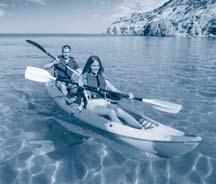



7 Rewrite the sentences in the passive.

1 People send millions of emails every day. _____________________________________________
2 Too much rain sometimes causes floods. _____________________________________________
3 People all over the world drink coffee. _____________________________________________
4 Robert Louis Stevenson wrote Treasure Island and Strange Case of Dr Jekyll and Mr Hyde. _______________________________________________________________________________
5 During the Middle Ages the bubonic plague killed a third of the population in Europe. _______________________________________________________________________________

8 Choose the correct answers.

1 Alexander Graham Bell, _______ was born in Edinburgh, invented the telephone. a) who b) whose c) which d) where
2 Becky ________from South Africa, but she _________ in the UK at the moment. a) comes, works b) comes, is working c) is coming, lives d) is coming, is working
3 ________have more than two portions of fruit a day. a) Everybody b) 50% people c) Nobody d) Very few people
4 I don’t eat _______ chocolate, but I drink _______ chocolate milk. a) any, much b) much, plenty of c) any, a lot d) many, lots of
5 ‘Can I give you _____ advice? Do your _____ on time and you won’t have any problems.’ a) a, homeworks b) an, homeworks c) an, homework d) some, homework

9 Put the words in the correct order to make questions.

1 languages / many / cousin / does / speak / how / your _______________________________________________________________________________?
2 you / to / part / activities / like / which / take / in / would _______________________________________________________________________________?
3 the / who / man / is / internet / name / the / what / of / the / invented _______________________________________________________________________________?
4 use / with / toys / you / a / which / play / to / when / did / were / child / you _______________________________________________________________________________?

10 Complete the dialogue with the missing words.
Waiter: Are you ready to _________ (1)?

Customer: Yes. For the starter, I’d _________ (2) the tomato soup, please.
Waiter: And for the main _________ (3)?
Customer: Is there anything you would _________ (4)?
Waiter: Roast chicken is today’s _________ (5).
Customer: That sounds good. I_________ (6) have that and French fries, please.














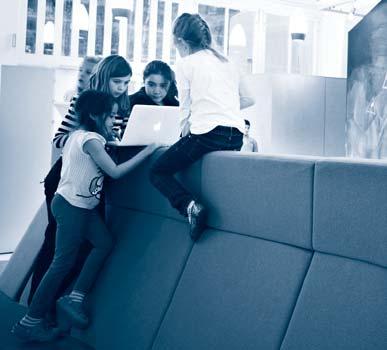






1 Look at the photos and complete the crossword. What’s the mystery word?
LookatthephotosandcompletethecrosswordWhat’sthemysteryword? L
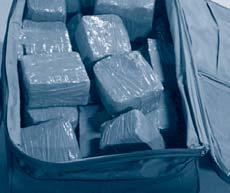

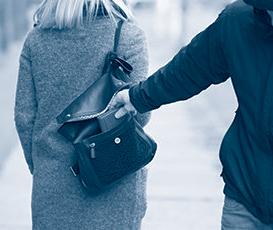

3





2 Match the words with their definitions.


1 victim A officially say what someone’s punishment will be
2 evidence B someone who sees a crime or an accident
3 sentence C someone who has been attacked, robbed, injured or murdered
4 arrest D information or things which help to prove someone has committed a crime
5 witness E take someone to a police station because you believe they have committed a crime

3 Match the words with their synonyms.
1 prison A precise
2 evidence B to kill
3 exact C proof
4 to burgle D to break into
5 to mug E jail
6 to murder F to attack





4 Complete the sentences by using the correct form of the words in CAPITALS.

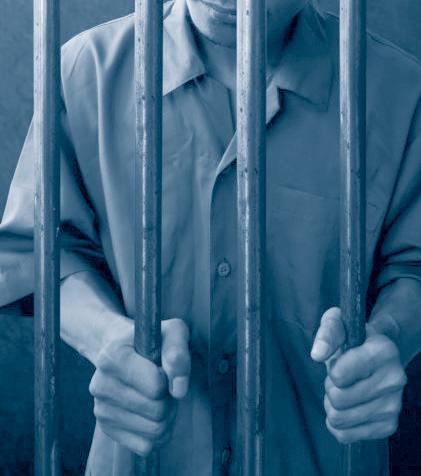

1 Two __________ broke into the office last night and stole a computer. THEFT
2 Nobody can steal anything from the building because all the rooms are __________ with video cameras. EQUIP
3 Unfortunately the victim couldn’t see the __________ well because it was dark. ATTACK
4 I think the criminal got the ____________ he deserved. PUNISH
5 Three Chinese ____________ were arrested for smuggling drugs into the country. CITY




5 Complete the text with the Past Simple and the Past Continuous.

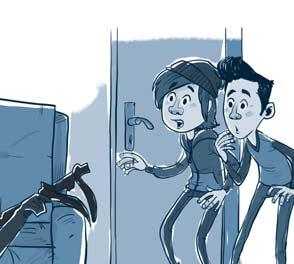


Two flatmates from Newcastle, Michael and Matthew, 1 ___________ (come) back home late one night when they 2___________ (find) a burglar fast asleep in their living room. The burglar 3 ___________ (lie) on the sofa and snoring loudly. When they came closer, they 4___________ (notice) that he 5___________ (wear) Michael’s jacket and had some stolen items in the pockets. When the police officers 6___________ (arrive), the burglar 7___________ (still / sleep). He 8___________ (wake) up and taken to the police station.




6 Complete the text with the Past Simple and the Past Continuous of the verbs in the box. wake receive say happen sleep not want see steal break pack
In March 2007 Suzie Jackson 1___________ in her home in Arizona when someone 2 ___________ into her house and 3___________ some jewellery. When she 4___________ up, she 5___________ that her 30-year-old pearl necklace given to her by her grandmother was missing. Three years later, while she 6___________ her suitcase and preparing to go away on holiday, she 7___________ a parcel with the stolen jewellery. The sender was anonymous, but there was a note which 8___________: ‘Please forgive me! So many bad things 9___________ to me because I stole these things from you.’ Suzie said she 10___________ the police to charge the burglar if they ever found him.

7 Complete the sentences so that they are true for you.
1 While I was doing my homework yesterday, __________________________________________.
2 When I woke up this morning, my mother ___________________________________________.
3 My friends were _______________________ while I __________________________________.
4 I was texting a friend when _______________________________________________________.
5 We _____________________________________________________ when the teacher came in.

8 Complete the questions with the Past Simple and the Past Continuous. Then write the answers to the questions.
1 What ______ you ______ (do) when your parents __________ (leave) home this morning? ______________________________________________________________________________.
2 ______ you ______ (listen) carefully while the teacher __________ (talk)? ______________________________________________________________________________.
3 Who __________ (text) you while you __________ (have) dinner last night? ______________________________________________________________________________.
4 ______ you ______ (meet) anyone while you ________ (go) home from school yesterday? ______________________________________________________________________________.
5 What __________ (happen) when you __________ (arrive) at school today? ______________________________________________________________________________.



9 Choose the correct words.
1 This test is very important, so I have to pass / revise for it the whole weekend.
2 The teacher was angry with me because I wasn’t paying / giving attention in class.
3 His parents expelled / grounded him for a week for smoking.
4 She was suspended and now she can’t go / attend classes for a week.
5 Bullying other students is against / break the rules in our school.

10 Complete the sentences with the words in the box. cheating vandalizing copying lying using sentenced suspended fights skips
1 ____________ to your parents is not a good idea. You must always tell them the truth.
2 I got detention for ____________ homework from a friend.
3 The teacher has called my parents because he caught me ____________ my phone in class.
4 A girl in my class was ____________ from school for two weeks for ____________ in a test.
5 Carl isn’t a well-behaved student. He often ____________ classes and gets into ____________ with other students.
6 The young man was ____________to two years in prison for ____________ public property.

11 3.08 Listen and choose the odd one out in each column. /i:/ /ɪ//u://ʊ/ cheat history bully stood chimney decide rule flood steal police soon cook free kill fool push


12 3.09 Listen and repeat.

13 Listen again and put the words in the correct columns.
ɪ//aɪ//əʊ//aʊ/ pay broke 3.10 Listen and check.

14 Put the words in the correct order to make sentences.

1 the / wear / belt / to / all / have / a / seat / drivers
2 in / smoke / you / building / this / mustn’t
3 eat / we / class / to / not / in / allowed / are
4 not / work / weekends / have / at / she / to / does
5 want / mine / you / if / to / borrow / you / can
6 need / plants / don’t / to / you / today / the / water

15 Read about unusual laws in some countries. Match the sentence beginnings (1–6) with the correct endings (A–F).











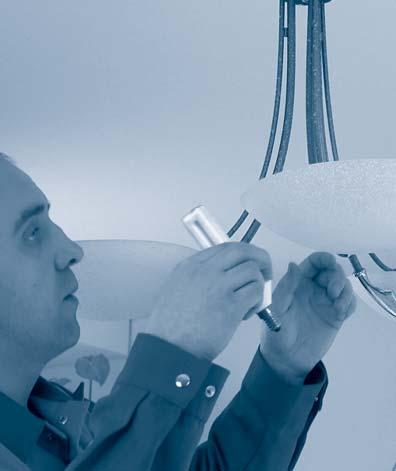
1 Only a qualified electrician is allowed to A radio stations must be by Canadian artists.
2 If you have any chickens in Quitman, Georgia, B to die in the Houses of Parliament.
3 In Kazakhstan it is against the law to
4 In England, it is illegal
C you mustn’t let them cross the road.
D you are caught spitting in Barcelona.
5 In Canada 35 percent of all music played on E take photographs of airport facilities.
6 You have to pay if F change a light bulb in Victoria, Australia.

16 Tick the correct sentences and correct the wrong ones.
1 You have be 17 to get a driving licence in the UK.
2 I must wear a school uniform when I was in primary school.
3 Are you allowed to use a calculator in your maths tests?
4 There’s a lift in the building, so you not have to take the stairs.
5 Students can leave the classroom during the break, but they mustn’t be late for class.
6 We weren’t allow to argue with our parents when we were children.

17 Complete the sentences with your own ideas.
1 You needn’t worry about _________________________________________________________.
2 At school we mustn’t ____________________________________________________________.
3 Last week I had to ______________________________________________________________.
4 Yesterday I didn’t have to ____________________ because _____________________________.
5 I was grounded and I couldn’t _____________________________________________________.
6 When I was 7 years old I wasn’t allowed to __________________________________________. g() –F).




18 3.11 Complete the dialogue with the words in the box. Then listen and check. focus need business fuss shout rely fault had asked fail couldn’t
Eva: Tom! Tom!
Tom: Don’t 1___________! I’m coming!
Eva: I 2___________ you to do the washing-up half an hour ago! I can’t 3___________ on you at all.
Tom: I 4___________ to finish my homework. You were vacuuming and it was so noisy. I 5___________ concentrate!
Eva: Now it’s my 6___________you can’t 7___________ on your studies! I couldn’t vacuum this morning because you were sleeping. I know you stayed up late last night playing games.
Tom: So what?! Why are you making such a 8___________ about it?
Eva: I’m not. But you 9___________ to be more responsible. You’ll 10___________ all your exams if you don’t study harder.
Tom: Don’t you worry about my exams! Mind your own 11___________!


19 3.12 Listen to the questions and choose the appropriate responses.
1 a) It’s your fault.
b) It’s all right.
c) It’s not OK.
2 a) Stop apologizing!
b) It doesn’t matter.
c) Sorry! I had to finish something first.
3 a) It’s OK. I’m fine now.
c) Sorry once again!

1 He told his sister to not blame him for everything.
2 She asked him lay the table fifteen minutes ago, but he still hasn’t done it.
b) I know you wanted to hurt me.
4 a) I’m so sorry! Please forgive me!
c) Oh, sorry! I didn’t know.
20 Correct the mistakes. There is one mistake in each sentence.
3 I didn’t asked you to mow the lawn or do the laundry, only to lay the table.
4 I didn’t mean to drop your phone. It was accident.
5 While you slept, I was carrying heavy bags from the supermarket.

b) Never mind. You can have one glass.
21 Complete the reported commands and requests using told or asked and the words in brackets.
1 ‘Please don’t call my parents!’ (the teacher)



Johnny ________________________________________________________________________.
2 ‘Stop talking!’ (the students)
The teacher ____________________________________________________________________.
3 ‘Can you help me carry this box upstairs?’ (her brother)
Samantha ______________________________________________________________________.
4 ‘Don’t cheat in the exam!’ (his son)
Ed ____________________________________________________________________________.
5 ‘Will you buy me an ice cream?’ (her grandma)
Lucinda _______________________________________________________________________.
6 ‘Don’t lie to us!’ (me)
My parents _____________________________________________________________________.




22 Choose the correct answers.

1 There are over a hundred floating schools in ___________ .
a) Pakistan b) Mongolia c) Bangladesh
2 In India some students don’t go to traditional schools. Instead they study ____________.
a) at airports b) on railway platforms c) on motorways
3 It was difficult for students to reach Guru Elementary School because it was located ____________.
a) on a mountain b) in the middle of a desert c) halfway up a cliff
4 At Brooklyn Free School students ____________ classes.
a) mustn’t skip any b) don’t have to attend any c) aren’t allowed to attend all the
5 Telefonplan School in Sweden is unusual because of its ____________.
a) design b) size c) location

23 Complete the text with the words in the box.
passengers incident captured anonymous tracks injured rescue viral platform
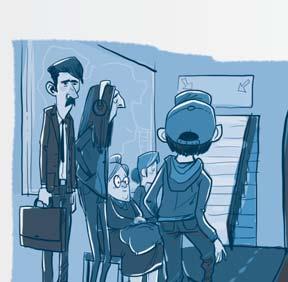
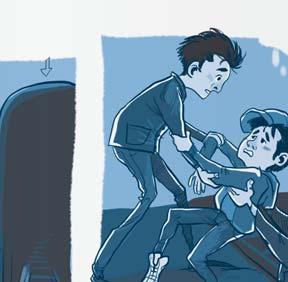

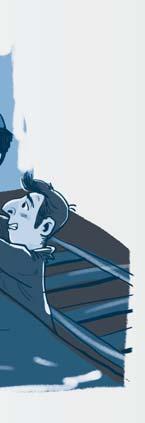
A man jumped onto train tracks to 1_________ a young boy just a few seconds before the train arrived at the station.
The 2_________, which happened last Thursday at an underground station in the Russian city of Yekaterinburg, was 3_________ on video. The footage shows the eight-year-old boy standing on the platform and looking at his mobile phone. At one point he got too close to the 4_________ and fell. As soon as it happened, he tried to get up, but failed. One of the 5_________ jumped down, picked him up and passed him on to other people who were standing on the 6_________. A few moments later a train pulled in. Luckily, the boy wasn’t 7_________, but he was in a state of shock. He still doesn’t remember exactly how it all happened.
The video went 8 _________ on social media, where the 9 _________ rescuer received a lot of praise. One YouTube user called him a hero and another one said: ‘It’s great to see there are still good people out there.’








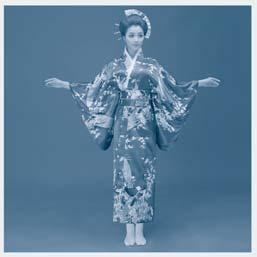











Read the clues and complete the crossword.
1 a small, useful device or machine
2 very special, unusual, different from others






3 someone who is of the same age as another person
4 give something to someone and get something in return
5 give money or goods to help a person or organization
6 use again

2 Complete the sentences with the words in the box. aware influenced current upcycle
1 Teenagers are often strongly __________ by their peers.
2 You can easily __________ old T-shirts into different things, such as blankets or handbags.
3 Many people are not __________ of the dangers of consuming too much sugar.
4 Remember that you don’t have to follow __________ trends in order to look good.

3 Match the words with their definitions.
1 fashion victim A have enough money to buy or pay for something
2 charity B not new, used
3 can afford C a piece of clothing
4 garment D someone who always wears fashionable clothes, even if they don’t suit them
5 second-hand E giving money, food, or clothes to people who are in need because they are poor, ill or have no home

4 Complete the sentences with the missing prepositions.
1 I always keep up _____ the latest fashion trends, but that doesn’t make me a fashion victim.
2 I’ve never tried to fit _____. I always try to stand _____ from the crowd.
3 Many young people need a role model that they can look up _____.
4 If you want to get rid _____ your old jeans you should think twice before throwing them _____ as you can easily turn them _____ a very nice handbag.
5 If you continue buying so many clothes, you’ll end _____ with no money

5 Complete the sentences by using the correct form of the words in CAPITALS.
1 Most people can’t afford to buy __________ brands. DESIGN
2 If you want to get rid of some __________ garments, you can always donate them to charity. WANT
3 Clothes that are too tight can affect __________. CIRCULATE
4 The clothes we wear can show our social status, interests and __________s. BELIEVE
5 __________, peer __________ and celebrity culture can turn young people into fashion victims. FORTUNE, PRESS




Hard is both an adjective and an adverb. Late is both an adjective and an adverb. Tom is a hard worker. I apologize for my late arrival. He works very hard. I came very late
The adverb hardly means ‘almost not’. The adverb lately means ‘recently’. Jake is so lazy. He hardly does any work at all. I’ve been really busy lately

6 Choose the correct words.
1 Don’t worry! Just follow the directions and you’ll find it easy / easily.
2 I’ve just heard the song you recorded last week. It sounds really good / well
3 Janice slept late / lately and missed her first class.
4 You should eat healthy / healthily and take plenty of exercise.
5 Adam is working very hard / hardly to finish the project by tomorrow.

7 Complete the table. Adjective / Adverb Comparative Superlative uglier wet the

8 Correct the sentences.
/ further
1 My town used to be less dirty in the past then it is now.
2 This is definitely worst experience I’ve ever had!
3 She goes to bed more early than anyone I know
4 The dress you wore at the party last Friday looks more better than this one.
5 Of all the students in the class Christina studies harder.

9 Complete the questions using comparatives and superlatives. Then write the answers.
1 What’s ________________ film you’ve ever seen? (long)
2 Apart from English, which foreign language do you think is ________________ to learn? (useful)
3 Do you speak English ________________ than your parents? (fluent)
4 Is it ________________ to have lots of friends or a few very close ones? (good) ______________________________________________________________________________.
5 Which app on your phone do you use ____________________? (often) ______________________________________________________________________________.


10 Write the missing words.

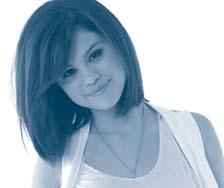

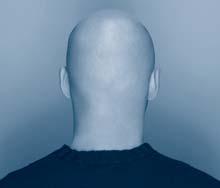







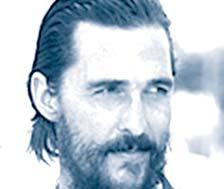






11 Choose the correct words.

1 Marilyn looked very elegant / casual in her long black dress and high heels.
2 Sam is the best looking singer in our town. He’s tall, dark and pretty / handsome
3 Candice is now quite slim / overweight because she works out three times a week and has a healthy diet.
4 She’s very stubborn / ambitious, but I don’t think that she’ll ever make it as an actress.
5 I used to be very aggressive / shy as a teenager, but I’m now much more talkative.

12 Write the adjectives in the box in the correct columns. lazy selfish creative kind rude aggressive loyal generous stubborn impatient

13 3.13 Listen and choose the odd one out in each column.

BE CAREFUL

14 Cross the incorrect words.

1 Have you ever / never / yet been here before?
2 Carol has never visited / been to / gone to Paris.
3 I’ve been very busy lately / already / recently.
4 She’s just / still / already arrived.
5 Tyler has worked here since six years / September / 2015

He’s gone to China. = He is still in China. He’s been to China. = He went to China and came back.

15 Complete the dialogue with the Present Perfect.
Mother: 1_______ you _______ (finish) everything?
Caroline: I 2______________ (do) the vacuuming, but I still 3______________ (not clean) the windows.
Mother: 4_______ Tim _______ (tidy) up his room?
Caroline: I think he 5______________ (make) his bed, but he 6______________ (not do) anything else.
Mother: I think I 7______________ (tell) him to clean his room at least three times.
Caroline: I know, but he 8______________ (be) very absent-minded lately. Who knows, maybe he 9______________ (fall) in love.
Mother: Hm...Dad 10______________ (just, set) the table. Let’s have lunch first!
Caroline: That’s a good idea. I 11______________ (not eat) anything since this morning.

16 Tick the correct sentences and correct the wrong ones.
1 He lives in the same town all his life.
2 She’s never been crazy about video games, but I’ve always loved them.
3 Hannah has been to the post office. She’ll be back in half an hour.
4 I know my best friend for over ten years.
5 My neighbour has gone to more than 20 different countries.

17 Write questions using the Present Perfect. Then write the answers.
1 you / ever / swim / lake _______________________________________? ______________________________________.
2 who / most generous / person / you / ever / met _______________________________________? ______________________________________.
3 how long / you / have / your mobile phone _______________________________________? ______________________________________.
4 what / best / song / you / recently / hear _______________________________________? ______________________________________.

18 Complete the sentences with your own ideas.
1 I’ve _________________________________________________ since ____________________.
2 I’ve never _____________________________________________________________________.
3 My mother has ________________________________________ for _____________________.
4 ____________ still hasn’t ________________________________________________________.
5 I haven’t ______________________________________________________________ recently.


19 Write the missing vowels.

1 s__lk 4 b__lt 7 sc__rf 10 tr__cks__ __t
2 c__ __t 5 l__ __ th__r 8 d__n__m 11 l__n__n
3 c__tt__n 6 sw__ __tsh__rt 9 sw_mm_ng tr_nks 12 p__ly__st__r


20 Write the words from exercise 19 in the correct columns.
Clothes Fabrics






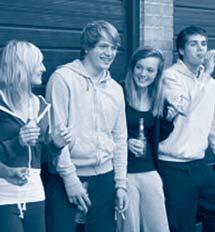


Nora: Look at this T-shirt! Isn’t it 1___________?

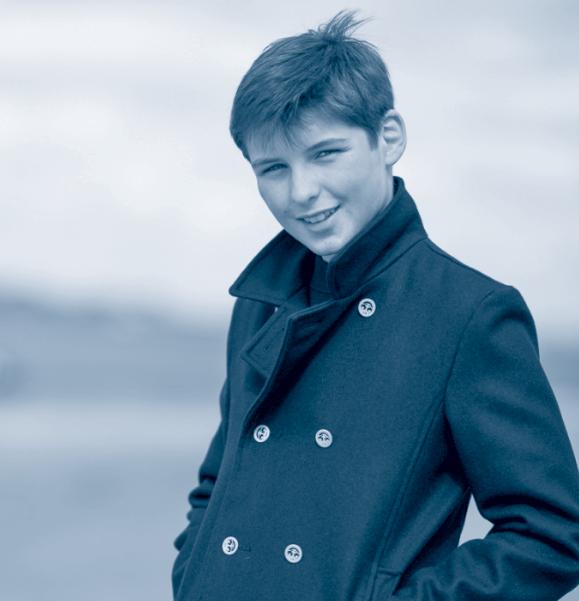



21 3.14 Complete the dialogue with the words in the box. Then listen and check. prefer reckon then on this well plain cool than another hate rather keen stand
Ben: Not really. I can’t 2___________ anything yellow. You know I 3___________ darker colours.
Nora: It’s polyester and I’d 4___________ buy a cotton T-shirt. Now, what do you think of 5___________ one?
Ben: I’m not very 6___________ on stripes. I’d always buy a 7___________ T-shirt.
Nora: Well, I love stripes, so I’ll try it 8___________ now. * **
Nora: What do you 9___________?
Ben: It’s all right.
Nora: Just all right? Let me see. Hm, maybe I’ll try on 10___________ one.
Ben: Don’t! It actually suits you really 11___________. You should definitely buy it.
Nora: I know how much you 12___________ shopping, but I want you to be honest.
Ben: I think it’s definitely better 13___________ the yellow one.
Nora: OK, I’ll take it 14___________!


22 Complete the sentences so that they are true for you.
1 I’m quite keen _____________________________________________________________.
2 I like ____________________________, but I prefer ______________________________.
3 I don’t want to do my homework tonight. I’d rather _______________________________.
4 I’d like to __________________________________________________________ one day
5 I really can’t stand _________________________________________________________.




23 Match the photos with the names of hats.

A beret
B fez
C sombrero
D bowler
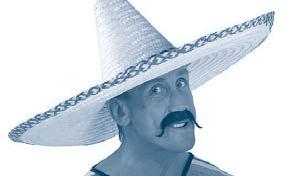








24 Choose the correct answers.
1 The sari is 5 to ___________ in length and about ___________in width . a) 7 metres, 2 metres b) 8 metres, 3 metres
2 The modern kilt appeared in the ____________ century a) sixteenth
b) seventeenth
3 Ponchos were first worn in ____________.
a) Africa
b) North America
4 Traditional kimonos are made of ____________.
a) silk
b) cotton
c) 9 metres, 1 metre
c) eighteenth
c) South Africa
c) linen

25 Complete the text with the missing words. Put ONE word in each gap.
One of the people I look 1_______ to most is my cousin Liam. I’ve 2_______ him all my life and although he is nine years older than I am, we’ve always 3_______ very close. Liam has 4_______ curly black hair and brown eyes. He usually 5_______ casual clothes, such 6_______ jeans, T-shirts and trainers.
Liam has just graduated 7_______ university and got his first job as 8_______ PE teacher. He has always been keen 9_______ sports. He has played football, basketball and tennis 10_______ he was very young. Liam has 11_______ part in many sports competitions and won a lot of medals. At the moment he’s into martial arts and has recently taken 12_______ boxing.
In his free 13_______ Liam writes and draws comics. He has made about fifty comics so far, but he hasn’t published any of them 14_______. He is very friendly, which is why he has many friends 15_______ love spending time with him.
I admire my cousin 16_______ his kindness, friendliness and creativity and I think he’s 17 _______ best sportsperson I’ve 18_______ met.
ve n y has He
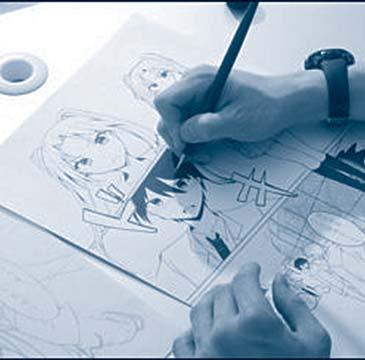

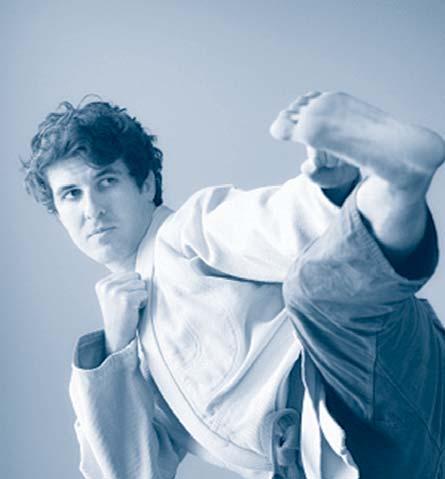








1 Find eight more words for fabrics. 2 Match the opposites. 1 elegant

overweight
thin
aggressive

3 Complete the missing words.

1 Two young men were arrested for v__________ public property.
2 Teenagers sometimes start smoking because of p__________ pressure.
3 James is g __________ for a week because his parents have found out that he was lying to them about his grades.
4 My dad started going b__________ when he was in his thirties and now he has no hair
5 The smugglers were s__________ to ten years in prison.

4 Choose the correct words.

1 The police didn’t have enough evidence / theft to arrest him.
2 He was suspended / expelled from school and he now has to find another one.
3 I had to mow / lay the lawn because the grass was so long.
4 Jane hates waiting for people. She is very stubborn / impatient




thick
6 Complete the crossword with the words for clothes. What’s the mystery word?
1 informal trousers made of denim
2 a strip of cloth worn around the neck
3 loose clothes worn especially for sport
4 men’s shorts worn for swimming
5 part of women’s shoes
6


7 Complete the sentences using the correct form of the verbs in brackets. Use the Past Simple, the Past Continuous or the Present Perfect.

1 He ____________ (hike) with a group of friends when the accident ____________ (happen).
2 While I ____________(mow) the lawn you ____________ (have) fun with your friends.
3 She ____________ (get) dressed, ____________ (have) breakfast and ____________ (leave) the house.
4 Sam ____________ (already, clean) the house, but he ____________ (not cook) dinner yet.
5 I ____________ (know) Tony for ten years. I ____________ (meet) him while I ____________ (live) in London.

8 Choose the correct answers.

1 I wasn’t _______ stay out after 8 p.m. when I was in primary school. I _______ be home by that time.
а) allowed, must b) allowed to, must c) allowed, had to d) allowed to, had to
2 You ________ leave the classroom during the break, but you _________ run in the corridors.
а) must, mustn’t b) can, mustn’t c) must, needn’t d) can, needn’t
3 Tim doesn’t always work so hard, but ________ he’s ________ left the office.
а) late, hardly b) late, hard c) lately, hardly d) lately, hard
4 Students can now access information _______ than before.
а) easy b) easier c) easily d) more easily
5 I’m not very keen _____ action films. I’d rather _____ a comedy.
а) on, watch b) on, to watch c) for, watch d) for, to watch

9 Put the words in the correct order to make questions.

1 not / school / were / to / what / allowed / you / at / were / when / you / do _______________________________________________________________________________?
2 ask / tell / it / did / not / anyone / he / you / to / about _______________________________________________________________________________?
3 like / dress / blue / the / one / you / to / would / wear / or / the / black _______________________________________________________________________________?
4 most / that / to / is / happened / thing / what / ever / has / surprising / the / you _______________________________________________________________________________?

10 Complete the dialogue with the missing words.

Tim: I’m really _________ (1) I’m late. I couldn’t come earlier.
Lisa: It’s all _________ (2). I was a bit late as well.
Tim: And I forgot to bring your notebook.
Lisa: It doesn’t _________ (3). I don’t need it today.
Tim: Sorry _________ (4) again.
Lisa: Stop _________ (5) Tim!
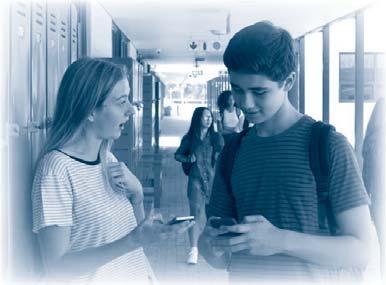











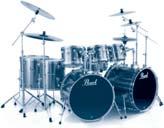
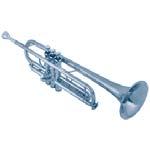


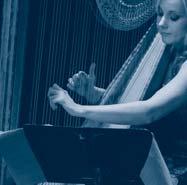





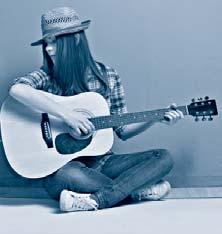

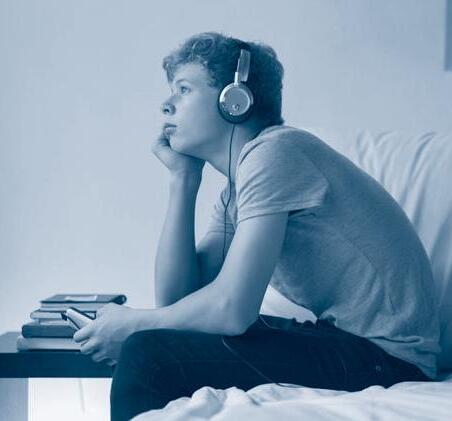





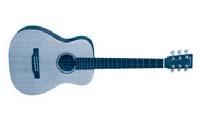



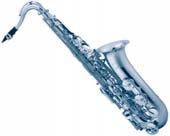
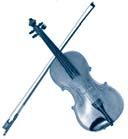
2 Write the words from exercise 1 and the box below in the correct columns. clarinet trombone tambourine cymbals tuba cello viola oboe

3 Complete the sentences with the words in the box. production lyrics ancient timeless distribution accessible
1 The lyre was one of the most popular instruments in __________ Greece.
2 With online streaming websites music has never been cheaper and more __________.
3 Technology has also made music __________ and __________ easier.
4 We don’t need to understand the __________ or the message of a song in order to enjoy it.
5 Music is constantly changing, but great music is __________.

4 Complete the sentences by using the correct form of the words in CAPITALS.
1 First drums were used in __________ ceremonies. RELIGION
2 The Walkman was the first device that ________ users to listen to music on the go. ABLE
3 __________ musicians can now reach audiences around the world. KNOW
4 The __________of the radio allowed people to listen to music at home. INVENT
5 Although it has evolved over time, music remains a __________ language. UNIVERSE



5 Match 1–7 with A–G.
1 as busy A as an ox
2 as free B as a lion
3 as blind C as a bee
4 as bald D as a bat
5 as brave E as a coot
6 as strong F as a fox
7 as cunning G as a bird

6 Complete the sentences with the missing words.
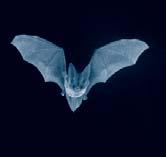




1 Some of these rituals are as old as the ________.
2 James was shocked when he heard the news. His face was as white as a ________.
3 I’ll try not to disturb you while you’re working. I’ll be as quiet as a ________.





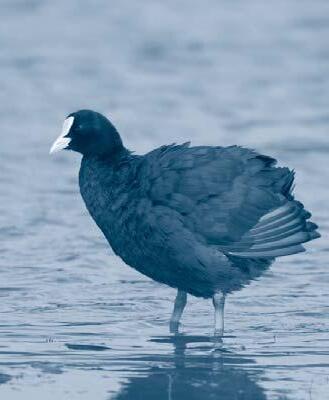

4 I tried to explain it to him, but he wouldn’t listen. He’s as stubborn as a ________.
5 Nobody can run faster than Owen. He’s as quick as ________.
6 It weighs no more than a few ounces. It’s as light as a ________.

7 Correct the sentences.
1 I can’t eat this chocolate. It’s to bitter for me.
2 Chocolate doesn’t taste as well as ice cream.
3 I don’t go to the cinema often as I’d like.
4 Jonathan doesn’t play the guitar enough well to be in a band.
5 He did the work as careful as possible.

8 Rewrite the sentences. Use the words in brackets.

1 It’s too dangerous to go there at night . (safe) It isn’t ________________________________________________________________________.
2 The first exercise is more difficult than the second one. (isn’t) The second exercise _____________________________________________________________.
3 He speaks very quickly. I can’t understand him. (too) ____________________________________________________________ for me to understand.
4 My father cooks better than my mother. (well) My mother ____________________________________________________________________.
5 Alfie is too short to reach the top shelf. (enough) Alfie _________________________________________________________________________.

9 Complete the sentences so that they are true for you.
1 I’m not as _____________________________________________________________________.
2 I don’t speak English as fluently ___________________________________________________.
3 I think I’m still too young ________________________________________________________ .
4 _____________________ isn’t ____________ enough to _______________________________.





10 Find fifteen more types of music.




11 Choose the correct answers.

1 What type of instrument is the ukulele?


a) brass b) percussion c) string






2 Which of these people is not usually a member of a band? a) a harpist b) a guitarist c) a keyboard player
3 Which type of music involves singing? a) vocal b) symphonic c) instrumental
4 Who was Louis Armstrong? a) a composer b) a rapper c) a jazz musician
5 Who sang Strangers in the night? a) Elvis Presley b) Frank Sinatra c) Michael Jackson

12 3.15 Listen to the words and mark the stress. Is the stress on the first or second syllable?
3.16 Listen and check.




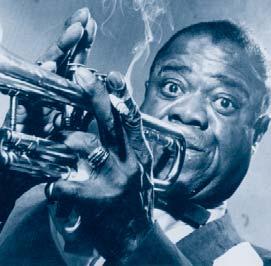


music guitar trumpet trombone enjoy express violin drummer release album Stress on the first syllable
on the second syllable music guitar
13 3.17 Listen and repeat. listen string castle instrument Christmas pianist distance whistle ballet fasten
14 Listen again. Circle the words in which the letter ‘t’ is silent.
3.18 Listen and check.







15 Complete the sentences using the Present Perfect or the Past Simple.
1 We still ___________ (not decide) where we want to go on holiday this year. Last summer we ___________ (spend) 10 days in Cuba. It ____________ (be) fantastic!
2 Tom___________ (ride) a motorbike a few times, but he ___________ (never, drive) a car.
3 You ___________ (change) so much since I last ___________ (see) you. I ___________ (not recognize) you at first.
4 I ___________ (borrow) this book from the library last week, but I ___________ (not start) reading it yet.
5 Pam ___________ (already, go) to work. I think she ___________ (leave) ten minutes ago.

16 Write short dialogues using the cues.
you / ever / be / Australia
Have you ever been to Australia? yes / go there / two years ago Yes, I have. I went there two years ago.
1 he / ever / try / extreme sports ____________________________________________? yes / do a bungee-jump / last year ____________________________________________.
2 how long / you / have / that jacket ____________________________________________? buy it / when / in China / last winter ____________________________________________. how much / it / cost ____________________________________________? think / pay / less than £20 for it

17 Rewrite the sentences. Use the words in brackets.
1 The concert started a few minutes ago. (just) The concert ___________________________________________________________________.
2 I haven’t found it yet. (still) I ____________________________________________________________________________.
3 He moved to Argentina last year. (lived) He ____________________________________________________________________ last year.
4 I met Celine five years ago. (known) I ____________________________________________________________________________.
5 When did you buy that necklace? (had) How _________________________________________________________________________?

18 Complete the sentences with the, a/an or Ø.
1 I don’t like wearing ____ boots, but ____ boots you bought last week look very nice.
2 Ringo Starr played ____ drums for the Beatles. Many people think he was ____ best drummer in ____ band.
3 My sister spends ____ lot of money on ____ clothes, but I don’t care about ____ fashion at all.
4 Jack is ____ student at Westbury High School. He plays ____ football really well and he is ____ captain of ____ school team.
5 Sam and Susan have just bought ____ new apartment. ____ apartment is very modern and there’s even ____ swimming pool at ____ top of ____ building.


19 3.19 Complete the dialogue with the missing words. Then listen and check.

Emily: Hi, James. I haven’t 1__________ you for a long time. How’s it 2__________?
James: Not 3_________, thanks. I’ve just got 4__________ from a holiday.
Emily: Really?! Where 5__________ you go?
James: We first 6__________ to Singapore and then 7__________ a week in Thailand.
Emily: Wow! That’s sounds exciting. I’ve 8__________ been to Asia, but I’d like to go there one day.
James: What have you been 9__________ to?
Emily: Not 10__________. The usual.
James: Have you heard 11__________ this new film everyone’s talking about, The Mirror?
Emily: I have, but I 12__________ haven’t seen it. Maybe we could watch it together.
James: Yeah, sure! Listen, I 13__________ to dash now! Talk to you later!
Emily: 14__________ you later!


We use absolutely with strong adjectives and very, quite and a bit with gradable adjectives (those that can be used in the comparative or superlative).
The film was very / quite good, but the one we saw last week was absolutely brilliant!
20 Cross the incorrect adverbs.

1 I’m feeling _______ tired today. I don’t feel like working. a) absolutely b) a bit c) pretty
2 Let’s stay in tonight. It’s _______ freezing outside. a) very b) so c) absolutely
3 The service in that restaurant was _______ good, so I think I’ll go there again. a) quite b) very c) a bit
4 Wow! Look at that building! It’s _______ enormous! a) really b) absolutely c) very
5 The teacher was _______ surprised that anyone knew the answer because the question was extremely difficult. a) quite b) not very c) really


21 Choose the correct adjectives.
1 I felt very uncomfortable. It was such an embarrassing / embarrassed situation.
2 I can’t look down! You know I’m terrifying / terrified of heights.
3 I had an exhausting / exhausted day! I just want to go home and have some rest.
4 Almost everyone thought the film was exciting / excited, but I was so boring / bored that I fell asleep halfway through it.
5 I’m absolutely amazing / amazed that anyone could say you can’t sing! You’ve got a voice of an angel!

22 Complete the sentences with your own ideas.
1 It was quite surprising to hear that __________________________________________________.
2 I was really disappointed when ____________________________________________________.
3 It’s so annoying ________________________________________________________________.
4 I was absolutely shocked _________________________________________________________.



G1 attempt
2 Lent
3 procession
4 float
5 bead
nings.
23 Match the words from with their meanings.


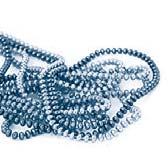




A a line of people or vehicles moving slowly as part of an event

B a large vehicle that is decorated and used in special events
C a small, usually round piece of plastic, wood, glass, etc. with a hole through it, that you usually put on a string and wear as jewellery
D the act of trying to do something



E the period of 40 days before Easter when some Christians stop doing something they enjoy

24 Choose the correct answers.
1 ___________ isn’t held in the United States.
a) Summerfest b) Coachella c) Tomorrowland
a) Glastonbury b) Woodstock c) Summerfest
3 ___________ is the first day of Lent.
a) Fat Tuesday b) Ash Wednesday c) Good Friday
4 Notting Hill Carnival takes place in ____________.
a) Rio de Janeiro b) Venice c) London
5 The traditional colours of Mardi Gras are ____________.
a) pink, green and gold b) purple, green and gold c) pink, blue and gold
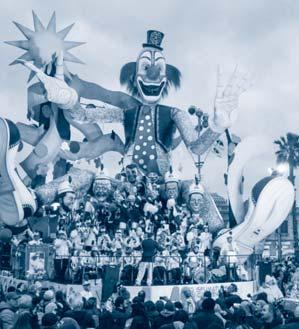

2 ____________ holds the Guinness World Record for the ‘world’s largest music festival’.

25 Complete the text with the words in the box.
age recorded composer started greatest musicians where received songwriter debut
Edward Christopher Sheeran is an English singer, 1__________ and guitarist. He was born in Halifax, West Yorkshire on 17 th February 1991. His parents are not 2 __________, but he has an older brother who is a classical 3 __________.



an ________ come one umber of ome t Loud

Ed learned to play the guitar at a very young 4__________ and started writing songs while he was still at school. In 2008 he quit school and moved to London, 5__________ he played hundreds of gigs for free. Sheeran recording music in 2004 but it wasn’t until 2011 that his 7__________ album was released.


Since then he has 8__________ a few more albums and become one of the world’s most popular singers. He has 9__________ a number of awards, including an *MBE for his contribution to music. Some of Sheeran’s 10__________ hits are Shape of You, Thinking Out Loud and Give Me Love

* MBE (Member of the Order of the British Empire) – a special honour given to some British people for things they have done for their country.
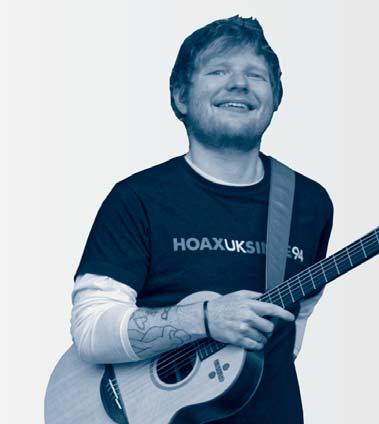


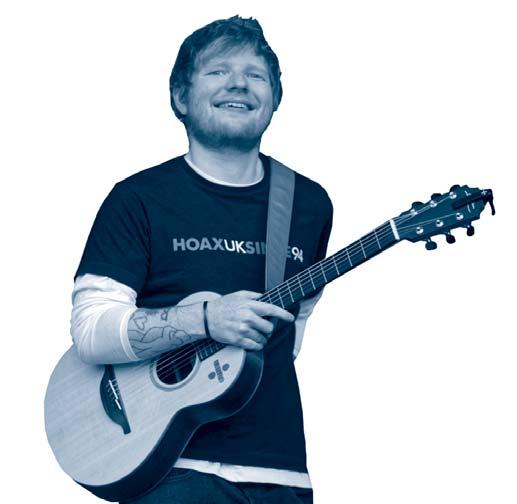
















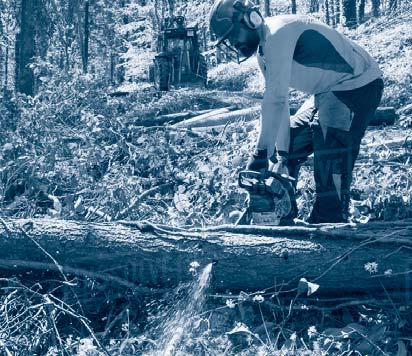






Read the clues and complete the crossword. Across
Read the clues and the crossword.
3 a thick layer of ice that covers the North and South Poles
6 energy that is produced using the sun, wind, etc. Down
1 the part in the Earth’s atmosphere that protects the Earth from the heat of the sun
2 the process of cutting or burning down trees
4 cows and bulls that are kept on a farm for their milk or meat
5 fuels such as coal or oil that were formed underground from plant and animal remains many thousands of years ago

2 Match the words to form collocations.
1 natural A power
2 global B consequences
3 solar C factor
4 climate D resources
5 greenhouse E change
6 key F gases / effect
7 serious G issues / warming


3 Complete the sentences with some of the collocations from exercise 2.
1 What are the most important ___________________ affecting the world today?
2 Burning fossil fuels releases ___________________ into the atmosphere.
3 There will be ___________________ if we don’t switch to renewable energy.
4 Renewable sources of energy include wind and ___________________.
5 Another ___________________contributing to ___________________ is deforestation.

4 Complete the sentences by using the correct form of the words in CAPITALS.
1 Overpopulation is one of the __________ challenges facing humanity today. GREAT
2 Population __________ is putting additional pressure on natural resources. GROW
3 Meat production is one of the __________ causes of climate change. LEAD
4 Carbon dioxide traps __________ from the sun in the atmosphere. HOT
5 We need to take action to cut our carbon __________. EMIT





We never use will in the if clause.

5 Complete the sentences with the correct form of the verbs in brackets.
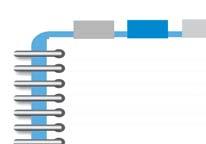

1 Sea levels ____________ (rise) if the Earth ____________ (get) warmer.
2 If we ____________ (not recycle) paper, we ____________ (need) to cut down more trees in the future.
3 There ____________ (be) an environmental disaster if we ____________ (not replace) fossil fuels with renewable energy.
4 If the population ____________ (reach) 11 billion by 2100, we ____________ (cannot) to continue living the way we do.
5 What ____________ (happen) if global warming ____________ (not stop)?

6 Rewrite the sentences. Use the words in brackets.
The future form of can is will be able to




1 We must stop cutting down trees or rainforests will disappear. (don’t) If ____________________________________________________________________________.
2 There will be serious consequences unless we reduce our carbon emissions. (if) There ________________________________________________________________________.
3 We can save the planet if we stop burning fossil fuels. (able) If ____________________________________________________________________________.
4 We will be at risk if we don’t change the way we grow our food. (unless) We __________________________________________________________________________.

7 Choose the correct options. Then write the answers to the questions.
1 Where will you go this weekend if the weather be / is / will be nice? If the weather __________________________________________________________________.
2 How will you feel if you not get / don’t get / won’t get a good mark in the test? _____________________________________________________________________________.
3 Is there / Are there / Will there be less pollution if people stop using cars? _____________________________________________________________________________.
4 What will happen to many plants and animals if we don’t stop / doesn’t stop / won’t stop destroying forests? _____________________________________________________________________________.

8 Complete the sentences with your own ideas. Use the First Conditional.
1 If I have some free time next week, _________________________________________________.
2 He’ll be embarrassed if __________________________________________________________.
3 If she doesn’t __________________________________________________________________.
4 I won’t be able to _______________________________________________________________.
5 The world will become a better place if _____________________________________________.
6 Unless we _____________________________________________________________________.












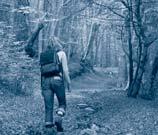




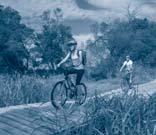



How can you reduce your carbon f__________?
Try to save e__________ and c__________ water!

Walk or c__________ instead of using a car!
Buy locally-g__________ food!
Start a v__________ garden!
P__________ a tree!
R__________ paper!


Try to reduce w__________! Don’t use p__________







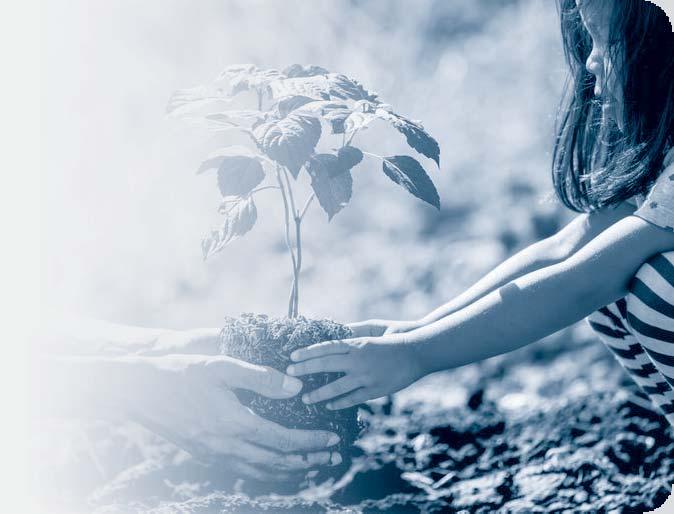

14 Rewrite the sentences. Use the words in brackets.

1 I’ve arranged to meet Tom and Liz on Monday. (meeting) I ____________________________________________________________________________.
2 I don’t intend to tell my parents what happened. (going) I ____________________________________________________________________________.
3 I probably won’t go back there again. (think) I don’t ________________________________________________________________________.
4 Melissa has decided to become a vegan. (is) Melissa _______________________________________________________________________.

15 Match sentence halves and complete the verbs in brackets with the correct forms of will + infinitive, be going to + infinitive or the Present Continuous.
1 What’s your plan for this summer? A I know. I ____ definitely ___________ (fail).
2 Oh, no! The car won’t start! B I think I ________ (stay) at home.
3 You haven’t studied for the test at all. C Actually I _________ (see) her this afternoon.
4 What are you doing tonight? D Don’t worry! I_________ (give) you a lift.
5 Have you seen Helen recently? E We ________ (go) to Spain on 20th July.

16 Put the words in the correct order to make questions. Then write the answers to the questions.
1 your / at / are / weekend / friends / seeing / you / the _________________________________________________________? ____________________.
2 going / reduce / footprint / to / what / you / carbon / do / your / are / to _______________________________________________________________________________?
3 think / in / you / do / will / the / people / future / how / travel _______________________________________________________________________________?
4 the / different / twenty / will / years / in / world / how / be _______________________________________________________________________________? _______________________________________________________________________________.

17 Complete the sentences with your own ideas.
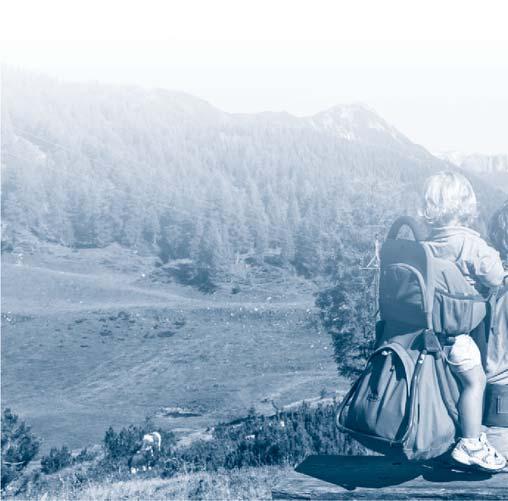
1 I’m going to ___________________________________________________________________. 2 I’m ________________________________________________________________ on Saturday.
3 My family and I aren’t going ____________________________________________ this summer.
4 I hope I’ll _____________________________________________________________________.
5 I don’t think ___________________________________________________________________.








F18 3.23 Complete the dialogue with the missing words. Then listen and check.

Jacob: Hey Molly! What are you 1________ to this weekend?
Molly: I’m 2________ canoeing with my family.
Jacob: Canoeing?! Wow! I’d love 3________ try that.
Molly: Why don’t you 4________ us then?
Jacob: I’m 5________, but I can’t. My cousins are coming all the way from Australia and they are 6________ to stay with us for a few days. What are you doing next Friday?
Molly: I haven’t got 7________ plans. Why?
Jacob: It’s my brother’s birthday, so we’re having a party at my house. 8________ you like to come?
Molly: Sure, why 9_______?

19 3.24 Match the sentences with the responses and complete the gaps with the missing words. Then listen and check.
1 Are you free tomorrow?
2 What are you doing this evening?
3 Do you fancy going for a walk?
4 Mike and I are going hiking next weekend. Would you like to join us?
5 I’m making a special meal this evening. Why don’t you come over?

A I’d love to, but I ________ to study tonight. Maybe some other time.
B I’m _______ I can’t. I’m going to my cousin’s wedding on Saturday.
C I haven’t got any _______. Why do you ask?
D Nothing ________.
E I’d _______ to, thanks! I’ve been stuck in the house the whole day.
20 Read the sentences and match the words with their meanings. They play an important role in marine ecosystems by maintaining the health of coral reefs. In the last century the population of these sea creatures has declined by 80 percent. While a large number of animals have already gone extinct, many more are in danger of dying out Illegal pet trade is another serious threat to orangutans as mothers are often killed for their babies, which are then sold as pets.
1 marine A disappear or stop existing completely
2 maintain B decrease, go down
3 decline C the activity of buying and selling goods or service
4 die out D related to the sea
5 trade E make something stay the same


21 Complete the table with the missing words.





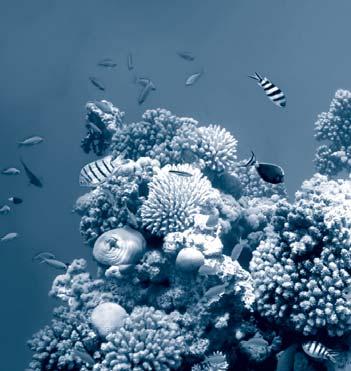


22 Choose the correct answers.
1 There are over ___________ million different animal species in the world. a) three b) five c) seven
2 There are no more than ____________ Amur leopards left in the wild. a) twenty b) forty-five c) sixty
3 Many black rhinos were killed in the second half of the ___________ century. a) 18th b) 19th c) 20th
4 The main threats hawksbill turtles face are poaching and ____________. a) deforestation b) ocean pollution c) illegal pet trade
5 The saola was discovered in ____________. a) Southeast Asia b) Central Australia c) North-East Africa
6 The word ‘orangutan’ means ___________ in the Malay language. a) ‘tree climber’ b) ‘man of the forest’ c) ‘intelligent animal’


























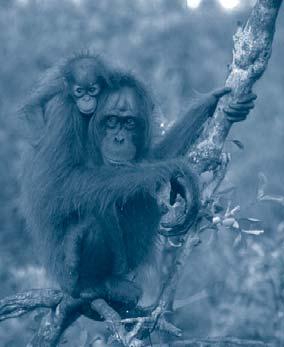
G23 Rewrite the sentences. Use the words in brackets.




1 One positive thing about having a dog is that it keeps you more active as you need to take it out for a walk a few times a day. (advantage) One ___________________________________________________________________________.
2 Also, having a pet can teach children how to be more responsible. (addition) _______________________________________________________________________________.
3 However, having a pet has some disadvantages. (hand) On ____________________________________________________________________________.
4 Firstly, owning a pet is a big responsibility. (all) First ___________________________________________________________________________.
5 Another bad thing about having a pet is that it often requires a lot of time. (disadvantage) _______________________________________________________________________________.
6 To sum up, there are strong arguments for and against owning a pet. (conclusion) _______________________________________________________________________________.
7 I think that owning a pet has many benefits. (opinion) _______________________________________________________________________________.



1 Find nine more words for musicians. 2 Match the synonyms.





1 tired A annoyed
2 frightened B cold
3 angry C terrified
4 amazed D surprised
5 frightening E exhausted
6 freezing F scary

3 Complete the missing words.

1 Matthew has a beautiful voice. He sings in the church c__________ every Sunday.
2 Beyonce’s d__________ album was Dangerously in Love and it was released in 2003.
3 Rhinos are one of the most critically e__________ species on the planet.
4 In my o__________, overpopulation is one of the biggest problems in the world today.
5 My family and I try to buy only e__________ friendly products.

4 Choose the correct words.

1 The flute is a brass / woodwind instrument.
2 Food production is one of the greatest challenges / consequences for the planet.
3 Burning fossils fuels releases / absorbs greenhouse gases.
4 The puzzle was as easy as feather / pie.


5 Write the nouns.

6 Complete the crossword with the missing words. What’s the mystery word? 1 ice _______
solar _______ 3 wind _______


7 Complete the sentences using the correct form of the verbs in brackets.

1 Nobody ____________ (know) what life ____________ (be) like in fifty years’ time.
2 Devon ___________ (not be) in touch since he and Maria ____________ (break) up.
3 I’m excited because I ____________ (go) camping next weekend. I ____________ (never, sleep) in a tent before.
4 I ____________ (not tell) you unless you ____________ (promise) to keep it a secret.
5 I ____________ (already, make) up my mind. I ____________ (quit) my job and travel around the world.

8 Choose the correct answers.

1 Sean was attacked in the street last night. He says it was a) very terrified b) very terrifying c) absolutely terrified d) absolutely terrifying
2 I _______ this mandolin when I started school, which means I ______ it for almost 6 years. a) bought, had b) bought, ’ve had c) ’ve bought, had d) ’ve bought,’ve had
3 ‘I out tonight, but I have to finish my homework first.’ ‘I help you if you want.’ a) ’ll go, ’ll b) ’m going, ’ll c) ’ll go, ’m going to d) ’m going, ’m going to
4 When I was _______ teenager, I was _______ singer in _______ pop band. a) a, a, a b) a, the, a c) Ø, a, the d) Ø, the, the
5 His new album doesn’t sound _____ the previous one. a) good as b) well as c) as good as d) as well as

9 Put the words in the correct order to make questions.

1 disadvantages / are / of / a / advantages / car / what / the / and / having _____________________________________________________________________________?
2 planet / will / too / humans / be / when / for / hot / the _____________________________________________________________________________?
3 to / panels / on / install / you / roof / are / solar / your / going _____________________________________________________________________________?
4 the / situation / most / in / have / embarrassing / ever / what / you / is / been _____________________________________________________________________________?

10 Complete the dialogue with the missing words.

Tim: Hi, Lisa! What are you up _________ (1) this weekend?
Lisa: Not _________ (2).
Tim: Are you _________ (3) on Saturday evening?
Lisa: I haven’t got any plans. Why do you ask?
Tim: I’m having a party at my house. _________ (4) you like to come?
Lisa: I’d _________ (5) to, thanks.















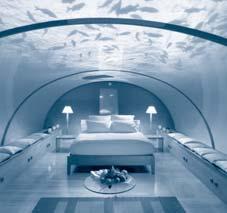











Complete the sentences with the words in the box.
trolls addicted cautious post attachments networking account
1 Don’t open any __________ that come from people you don’t know.
2 You need an email __________ to sign up for most online services.
3 You should ignore __________ on social media who __________ hateful comments online.
4 A lot of young people are __________ to video games.
5 Be __________ about who you accept as friends on social __________ sites.






2 Complete the sentences by using the correct form of the words in CAPITALS.



1 The Internet has __________ the way we communicate. REVOLUTION
2 You should call the police if you see or hear anything __________. SUSPICION
3 Internet __________ is a growing problem in many countries. ADDICT
4 It is a great source of information, but you need to learn how to use it __________. WISE
5 Researchers say that spending too much time online can lead to feelings of __________ and __________. LONELY, DEPRESS
6 Check the privacy __________ on your social media accounts to make sure only friends can see what you post online. SET

3 Write down three things you should and three things you shouldn’t do online. Dos Don’ts
1 We should __________________________.

4 Complete the sentences with the correct indefinite pronouns.
1 Thanks to the Internet we can now communicate with __________ and buy almost __________ online.
2 There are Internet trolls __________, but that doesn’t mean that you shouldn’t use social media at all.
3 It was __________’s fault. These things sometimes just happen.
4 Unfortunately, I couldn’t find it __________, so I had to buy __________ else.
5 Don’t worry! I’m sure __________ will be able to help us.
6 Relax because there’s __________ else you can do now.






5 Choose the correct form of the verbs.
1 Read / Reading a book can actually be much more exciting than looking at a screen all the time.
2 Your friends should never make you feel / to feel bad about yourself.
3 I don’t mind to post / posting some personal information on social media, but I refuse to share / sharing my password with anyone.
4 Your password should contain / to contain both upper and lower case letters, numbers and symbols.
5 Let me know / to know if you want me help / to help you with anything.

6 Complete the sentences with the gerund or the infinitive of the verbs in the box. post look keep have get say communicate
1 The Internet allows us ________ with people from across the globe.
2 My parents keep ________ that I spend too much time ________ at my phone.
3 I can’t imagine not ________ a smartphone since I’ve had one for two years now.
4 Matt was accused of ________ embarrassing photos of his friends on social media.
5 You need ________ calm. Remember that you won’t achieve anything by ________ upset.

7 Tick the correct the sentences. Correct the wrong ones.
1 I hate talking to people who are rude to others.
2 I am interested in learn more about online education.
3 I plan deleting all my social media accounts and never use them again.
4 He has decided not to check his messages just before going to bed anymore.

8 Complete the sentences using the prepositions in the box and the -ing of the verbs in brackets. for on of from about
1 The Internet shouldn’t stop you _____________ (do) important things such as studying or spending time with your friends.
2 Instead _____________ (sleep), he spent the whole night playing a game on his phone.
3 Don’t worry _____________ (not have) many friends. It’s important that you aren’t lonely.
4 She thanked me _____________ (help) her install antivirus software on her computer.
5 The headmaster congratulated me _____________ (win) the first prize in the competition.

9 Complete the sentences with your own ideas.

5 Let me to finish reading the text and then I can help you with your homework.
e o


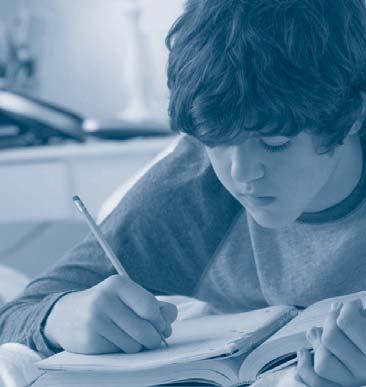




1 I enjoy _______________________________________________________________________.
2 I really can’t stand ______________________________________________________________.
3 My parents always try to make me _________________________________________________.
4 I sometimes try to avoid _________________________________________________________.
5 I don’t want ___________________________________________________________________.
6 My mother never lets me _________________________________________________________.



10 What are the opposites of the adjectives in the box? Put them in the correct columns.

usual polite imaginable logical dependent visible kind responsible sensitive patient moral regular necessary expensive rational legal realistic probable
unusual




11 Choose the correct answers.

1 The ____________ was invented in 1926. a) radio b) television c)


2 ____________ flew the first successful airplane in 1903. a) Nikola Tesla b) Thomas Edison


3 The first mobile phone was made in ____________. a) 1973 b) 1983
computer ane in 1903 n c) The Wright h brothers c) 1993

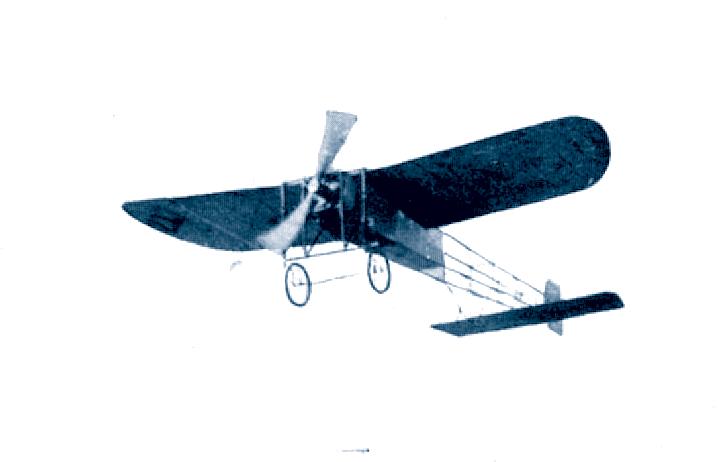

4 The ____________ was invented by accident in 1945. a) fridge b) microwave c) dishwasher
5 The Internet became publicly available in ____________. a) 1991 b) 1996 ` c) 1999

12 3.25 Listen and repeat.

13 Listen again and put the words in the correct columns. /t/ /

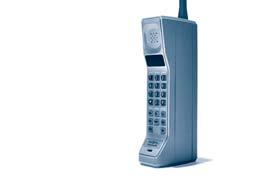
technology thanks without threat themselves Thomas Theodore Thames Thai health another clothing everything thyme although
/ /ð/ technology thanks without
3.26 Listen and check.



14 Match sentence halves.
1 If my mobile phone stops working, A I’ll buy a new one.
2 If you buy a domestic robot, B if no one ever broke the law.
3 You can save a lot of money C I will have to travel by plane.
4 There would be less pollution D you won’t have to do any housework.
5 If I go to the USA in the future, E if you install solar panels.
6 The world would be a better place F if we didn’t fly so much.

15 Put the words in the correct order to make questions. Then write the answers to the questions.
1 do / had / time / you / what / if / more / you / free / would _______________________________________________________________________________? _______________________________________________________________________________.
2 rich / you / buy / what / if / were / would / you _______________________________________________________________________________? _______________________________________________________________________________.
3 you / if / would / fly / go / you / where / could _______________________________________________________________________________?

16 Rewrite the sentences using the passive.
1 People have destroyed many animal habitats. _______________________________________________________________________________.
2 People often kill hawksbill turtles for their meat and eggs. _______________________________________________________________________________.
3 You can find black rhinos in Namibia and east coast of Africa. _______________________________________________________________________________.
4 In the next few years electric vehicles will replace many petrol and diesel cars. _______________________________________________________________________________.
5 Who invented the light bulb? _______________________________________________________________________________?

17 Complete the sentences with the reflexive pronouns in the box. myself yourself himself herself ourselves yourselves themselves
1 My grandfather often talks to ___________, but I don’t see anything wrong with that.
2 I think we are now old enough to take care of ___________.
3 Stop taking photos of ___________! It’s annoying.
4 My mother managed to raise two children all by ___________.
5 They blamed ___________ for what happened, but it wasn’t their fault.
6 Yesterday my parents were at work the whole day and I prepared the meal by ___________.
7 If the two of you don’t know anyone here, then you should first introduce ___________.
ing that
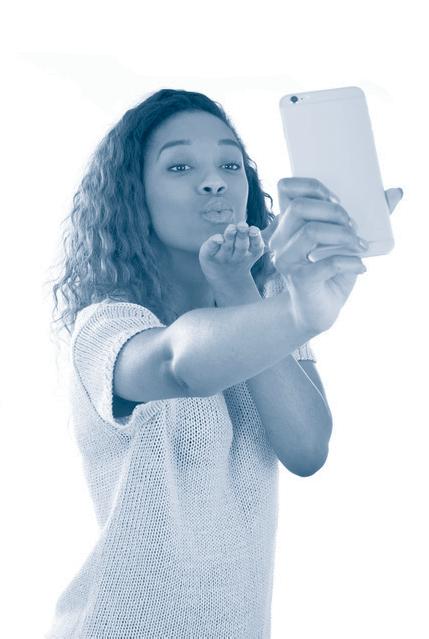



18 Write the words in the box in the correct columns.
hotel beach sightseeing houseboat bed and breakfast skiing adventure cruise campsite camping city break cottage guesthouse safari youth hostel self-catering apartment
Types of holidays

Places to stay




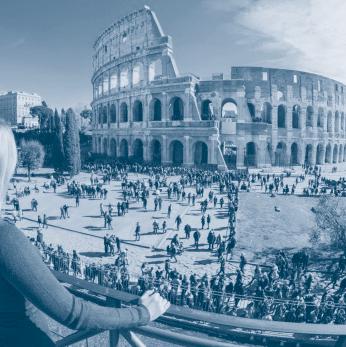


19 Match the definitions with some of the words from exercise 18.

2 ________________ – a place where you can cook your own food.


1 ________________ – a cheap place where travellers, especially young people, can stay for a short period of time.
3 ________________ – visiting the famous or interesting places as a tourist.
4 ________________ – a place where people on holiday can stay in tents.
5 ________________ – a small hotel or private home where people can pay to stay and have meals.

Mia: What are we 1________ to do for our holiday?
Sean: I was thinking we 2_______ go skiing in the Alps.
Mia: That’s not a 3_______ idea, but it would be too expensive.
Sean: How 4_______ going to the seaside then?



20 3.27 Complete the dialogue with the missing words. Then listen and check.
Mia: I’m not so 5_______. I think I’d 6_______ go sightseeing, visit some interesting new places…
Sean: Why 7_______ go on a city break then?
Mia: That’d 8_______ great! But where 9_______ we go?
Sean: 10_______ go to Rome! We’ve never been there and everyone says it’s an amazing city.
Mia: Now that’s a 11_______ idea!







21 Choose the correct answers.

1 Jules Underwater Lodge used to be a ____________.
a) prison b) laboratory
2 The Ice Hotel is located in a village in ____________.
a) Sweden b) Norway
c) school
c) Finland.
3 One of the robot receptionists in Hann na Hotel in Japan looks like ___________.
a) an orangutan b) a dinosaur
c) a mammoth
4 Guests at Palacio de Sal, Bolivia are asked ____________.
a) not to jump b) to take off their shoes
5 The pudu is the smallest____________ in the world.
a) deer b) kangaroo
6 Part of Hotel Costa Verde is an old ____________. a) ship b) plane
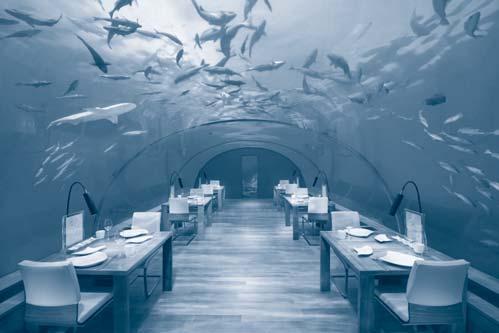

c) not to lick the walls
c) antelope
c) helicopter

22 Answer the questions.


1 If you ruled your country, what would you change and why?
2 If you could take a holiday anywhere in the world, where would you go and why? What would you do and see there?



















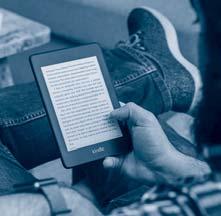






Matchthebookcoverswiththegenres M
1 Match the book covers with the genres. fantasy adventure detective horror tragedy science fiction

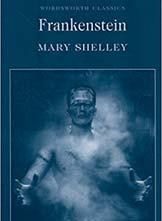
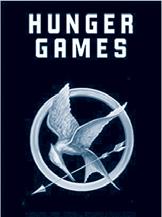
1 Frankenstein 2 Hunger Games


The Hobbit
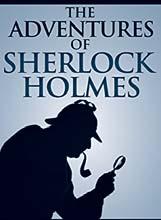
The Adventures of Sherlock Holmes
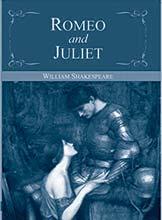
Romeo and Juliet
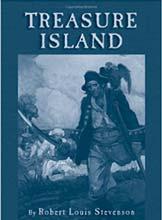
2 Complete the sentences with the words in the box. uncover hooked humorous elect curious fictional hilarious
1 A __________ thing happened while I was reading an article online.
2 Sherlock Holmes is a __________character created by Arthur Conan Doyle in 1887.
3 My Family and other Animals is a __________ account of the author’s early years. It made me laugh a lot. It’s not only __________, but it’s also very educational.
4 This novel is fanstastic! I was __________ after the first few pages.
5 In his diaries Adrian Mole mentioned Margaret Thatcher, who was __________ Prime Minister of the UK in 1979.
6 The main character is a detective who tries to __________ his family’s hidden secrets.

3 Complete the sentences by using the correct form of the words in CAPITALS.
Treasure Island TALS.

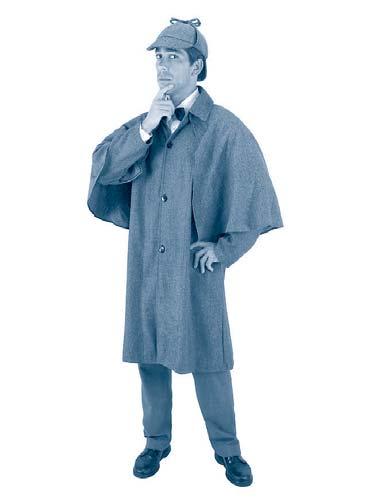
1 George Orwell was a famous English __________ who wrote Animal Farm and Nineteen Eighty-Four. NOVEL
2 Adrian Mole writes openly about his parents’ __________ problems. MARRIAGE
3 As an adult you have the __________ to make your own decisions. FREE
4 I didn’t know it would happen. It was totally __________. EXPECT
5 The little boy looks so __________, but he can actually be very naughty INNOCENCE
6 The __________ of the novel To Kill a Mocking Bird is a six-year-old girl called Scout. NARRATE



4 Tick the correct the sentences. Correct the wrong ones.
1 I’ll lend you the book, but please take care of it.
2 He was bitten by a mosquito while he sleeping.
3 She has wrote many books that are loved by children and adults alike.
4 I didn’t understand what was going on until much later.
5 She loves detective stories, but she doesn’t likes science fiction at all.

5 Choose the correct verb forms. Then answer the questions.
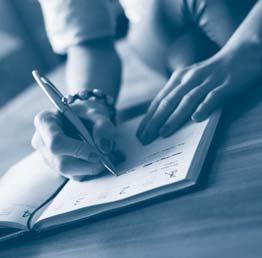
1 What is / does your favorite book of all time? _______________________________________________________________________________.
2 What is the funniest book you ever read / have ever read? _______________________________________________________________________________.


3 How many books have you read / did you read in your life? _______________________________________________________________________________.
4 Are you reading / Are you going to read any books next month? _______________________________________________________________________________.

6 Complete the sentences with the correct form of the verbs.
1 None of the teachers at school _____________ (notice) that I am an intellectual. They _____________ (be) sorry when I _____________ (be) famous.
2 I _____________ (not get up) until half-past four this afternoon. I think I _____________ (suffer) from depression.
3 I _____________ (go) to Sheffield tomorrow morning. I _____________ (never be) on a train on my own before.
(The Secret Diary of Adrian Mole, Aged 13 3/4 by Sue Townsend)
4 ‘Christopher, I never _____________ (mean) to hurt you. I thought that what I _____________ (do) was the best for all of us.’
5 When we were inside the park Mrs. Alexander _____________ (stop) walking and _____________ (say), ‘I am _____________ (say) something to you and you must promise not to tell your father that I _____________ (tell) you this.’

7 Complete the sentences with your own ideas.
(The Curious Incident of the Dog in the Night-Time by Mark Haddon)
1 I’m currently __________________________________________________________________
2 I promise I won’t _______________________________________________________________.
3 I didn’t ______________________________, but I ____________________________________.
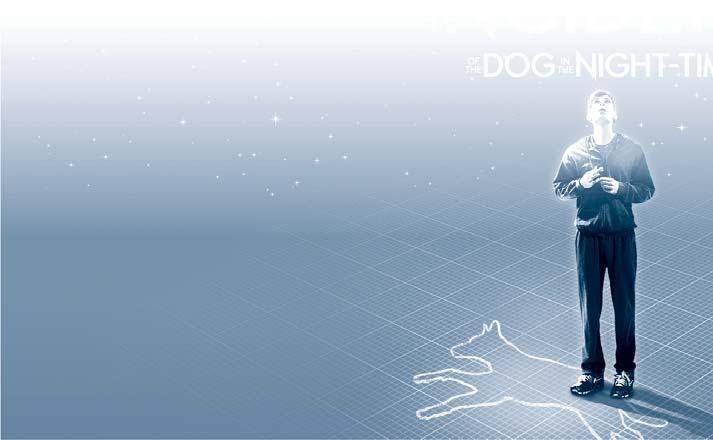
4 I was ____ ing ______________ when ______________________________________________.
5 I still haven’t ____________________ because _______________________________________.
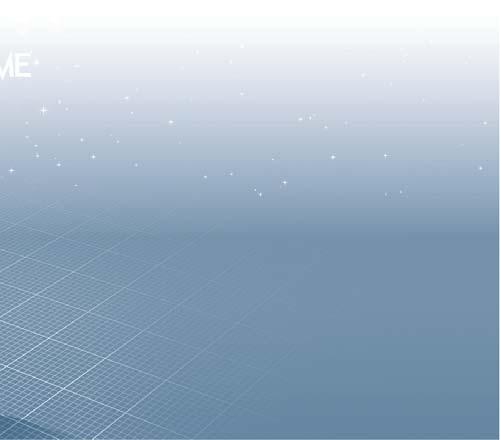




8 Choose the correct words.
1 The Amazon Kindle is one of the most popular e-books / e-readers in the world.
2 And Then There Were None is a 1945 film adaptation / soundtrack of Agatha Christie’s best-selling mystery novel of the same name.
3 After reading the reports / reviews of this book, I decided not to buy it after all.
4 There’s an unexpected twist in the chapter / plot at the end of the film, but I won’t tell you anything else.
5 I’m afraid that I can’t watch English movies without subtitles / special effects.
6 I love to read different book kinds / genres, from romance to fantasy.

9 Choose the correct answers.
1 ____________ is story of a real person’s life written by that person. a) An encyclopedia b) A biography c) An autobiography
2 The Adventures of Tom Sawyer was written by ____________. a) Mark Twain b) Agatha Christie c) Lewis Carroll
3 ____________ was the author of Robinson Crusoe a) Charles Dickens b) Daniel Defoe c) Jonathan Swift
4 ____________ isn’t a children’s book. a) Animal Farm b) The Little Prince c) Alice’s Adventures in Wonderland
5 Shakespeare’s play Hamlet is a ____________. a) fantasy b) comedy c) tragedy
6 Ian Fleming created the character of ____________. a) Superman b) James Bond c) Sherlock Holmes

10 3.28 Listen to the words and write them in the correct columns. /s/ /z/

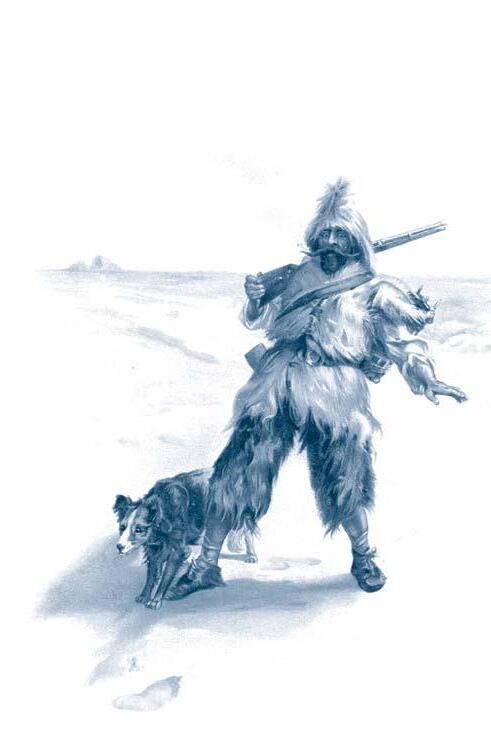

11 3.29 Listen and repeat.
lamb bomb mumble comb climber tomb thumb timber tumble debt umbrella undoubtedly subtitles
12 Listen again. Circle the words in which the letter ‘b’ is silent.

3.30 Listen and check.

13 Match sentences halves.

1 More and more people are buying e-readers, A didn’t you?
2 You saw the trailer before watching the movie, B haven’t you?
3 Chris doesn’t like science fiction, C don’t they?
4 Your parents love reading, D aren’t they?
5 You’ve read that novel at least three times, E isn’t he?
6 Tim’s going to buy an e-reader, F does he?
14

Complete the sentences with the question tags.
1 Anna isn’t going to study literature, _______________?
2 You don’t need to watch movies in English with subtitles, _______________?
3 It’s been a long time since we last went to the cinema, _______________?
4 You’ll help me write this article, _______________?
5 Eva and Lauren met some famous actors at the party, _______________?
6 The trailer really makes you want to watch the movie, _______________?

15 Complete the sentences with the missing adjectives.
1 I normally love dramas, but this film was so d_________ I fell asleep watching it.
2 Most school subjects are compulsory, but there are some that are o_________.
3 I’m not going to continue reading this book because it’s full of u_________ information.
4 There are so many characters in the book and the plot is so c_________ that I find it difficult to follow.
5 They bought a s______-_____ car because they couldn’t afford to buy a new one.
6 It’s much easier to carry an e-reader around because it’s quite l_________, whereas print books can be very h_________.

16 Rewrite the sentences. Use the words in brackets.
1 Perhaps we’ll go hiking this weekend if the weather is good. (may)
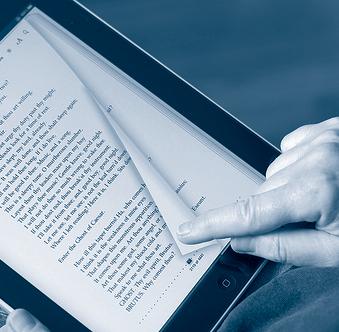


2 Don’t you think this book is worth reading? (isn’t)
3 I’m certain you’ll manage to overcome all the obstacles. (definitely)
4 It probably won’t rain this evening. (may)





We __________________________________________________________________________.
This book _____________________________________________________________________?
You __________________________________________________________________________.
It ____________________________________________________________________________.
5 Do you like playing board games? (don’t)
You __________________________________________________________________________?
6 There’s a possibility you won’t enjoy this film as you are not very keen on comedies. (might)
You __________________________________________________________________________.




1 Find eleven more words related to books. 2 Match the antonyms. 1 simple


useful
new
interesting
heavy E useless
optional F second-hand

3 Complete the missing words.

1 I rarely p__________ any photos online.
2 Most teenagers use social networking s__________ such as Instagram.
3 A b__________ is the life story of a person written by someone else.
4 Last night I watched a Spanish film with English s__________.
5 Mark Twain was a famous n__________ who wrote The Adventures of Tom Sawyer

4 Choose the correct words.

1 I’d like to hire / book a room for 2 nights.
2 A troll / An addict is someone who writes negative comments on the Internet.
3 I saw a trailer / soundtrack for a new film with Anne Hathaway.
4 The president is elected / uncovered every four years.


5 Write the nouns.















7 Complete the sentences using the correct form of the verbs in brackets.

1 We still ____________ (not decide) where to go on holiday. We may ____________ (go) to Norway as we ____________ (never be) there before.
2 I promise I ___________ (not ask) you that question again if you ___________ (do) me a favour
3 Instead of ____________ (study), you ____________ (now, waste) your time looking at your phone.
4 If I ____________ (be) you, I ____________ (try) to save up some money
5 Freddie ____________ (not like) his English teacher because he always makes them ___________ (write) lots of essays.

8 Choose the correct answers.

1 She refused to the party because she can’t stand _______ loud music. a) to go, to listen b) to go, listening c) going, to listen d) going, listening
2 What _______ you change if you _______ the world? a) will, ruled b) would, ruled c) will, rule d) would, rule
3 You shouldn’t let anyone your homework. You should do it a) do, yourself b) to do, yourself c) do, by yourself d) to do, by yourself
4 _______ knows that you can’t learn _______ in such a short period of time. a) All, nothing b) All, anything c) Everyone, nothing d) Everyone, anything
5 Thomas Edison invented the light bulb, _____ he? a) was b) wasn’t c) did d) didn’t

9 Put the words in the correct order to make questions.

1 won / would / you / the / do / what / lottery / if / you _______________________________________________________________________________?
2 live / don’t / grandparents / countryside / they / in / your / the _______________________________________________________________________________?
3 comments / yourself / make / you / better / do / about / positive / feel _______________________________________________________________________________?
4 be / if / no / your / different / would / there / Internet / life / how / was _______________________________________________________________________________?

10 Complete the dialogue with the missing words.
Tim: What are we 1________ to do for our holiday?

7 l
Lisa: I was thinking we 2_______ go on a city break. I’ve always wanted to visit Venice.
Tim: I’m not so 3_______. I think I’d 4_______ go somewhere where we can relax.
Lisa: How 5_______ going to the beach then?
Tim: That’d 6_______ great! But where 7_______ we go?
Lisa: Let’s go to one of the Greek islands! Everyone says they are amazing.

PRESENT SIMPLE



+ I, You, We, They speak Portuguese. / He, She, It speaks Portuguese.
– I,You, We, They do not (don’t) speak Dutch. / He, She, It does not (doesn’t) speak Dutch.
? Do I, you, we, they speak Hungarian? / Does he, she, it speak Hungarian?
We use the Present Simple:
• for facts and general truths; Anna comes from the UK.
• for routines and repeated actions (often with adverbs of frequency: always, usually, normally, often, sometimes, rarely, hardly ever, never); She often reads French magazines.
• with state verbs (be, believe, belong, hate, have (possession), know, like, love, mean, need, prefer, seem, suppose, think, understand, want, etc.).
I like French, but I prefer Spanish.
PRESENT CONTINUOUS

+ I am speaking German. / We, You, They are speaking German. He, She, It is speaking German.
– I am not (I’m not) speaking Chinese. / We, You, They are not (aren’t) speaking Chinese. He, She, It is not (isn’t) speaking Chinese.
? Am I speaking Danish? / Are we, you, they speaking Danish? Is he, she, it speaking Danish?
We use the Present Continuous:
• for actions happening at the moment of speaking; Look! They’re eating ice cream in the middle of January.
• for actions happening around the moment of speaking; I’m studying a lot for my exam at the moment.
• for temporary actions. Her family is living in Lisbon at the moment.
GRAMMAR CHECK
USED TO

+ Harry used to live in the heart of London, but now he lives in the suburbs.
– Carol didn’t use to have many neighbours, but she now shares a building with two hundred other people.
? Did Jamie use to do more sports when he lived in the Netherlands?
We use used to to talk about past facts or habits that are no longer true.

PASSIVE
PASSIVE (Present Simple)
Active Passive
+ They speak English in the UK. English is spoken in the UK.
– They don’t speak Serbian in the UK.Serbian isn’t spoken in the UK.
? Do they speak English in Ireland? Is English spoken in Ireland?
PASSIVE (Past Simple)
Active Passive
+ They built Machu Picchu in the 15th century.Machu Picchu was built in the 15th century.
– An earthquake didn’t destroy Machu Picchu. Machu Picchu wasn’t destroyed by an earthquake.
? Did Hiram Bingham rediscover Machu Picchu? Was Machu Picchu rediscovered by Hiram Bingham?
To form the passive we use the verb be and the past participle of the verb The object of the active sentence becomes the subject in the passive. We use the passive when we don’t know or when it isn’t important who does the action. When we want to say who performs the action, we use the preposition by.
VERBS OF SENSE
We use the verbs look, feel, sound, smell and taste with an adjective. This cake tastes great! I’ll have another piece. You look really tired. Did you sleep well last night? The roses look and smell beautiful
QUANTIFIERS
Countable nouns
Uncountable nounsBoth countable and uncountable many few (=some, positive meaning) a few (=some, positive meaning) several much little (=some, negative meaning) a little (=some, positive meaning) some any no a lot of / lots of plenty of
I usually have some tea before breakfast. I normally have a few cups of tea every day. There’s very little coffee left, so we’ll have to buy some today.
ARTICLES
We use the indefinite article (a/an) with:
• singular countable nouns; Water is a nutrient.
• jobs or professions. David is a health expert
We use no article with:
• plural countable nouns; Carbohydrates give us energy.
• uncountable nouns used in a general sense; Most people like chocolate.
• the names of meals.
Breakfast is the most important meal of the day.
Uncountable nouns are used with a singular verb. The weather is fantastic. Let’s go away for the weekend!
There isn’t much furniture in my house. We can’t use a / an with nouns like information or advice, but we can use some / a piece of / a few pieces of. I’ll give you a piece of advice I’d like some information about your products.
We use who to talk about people. The woman who came to my house yesterday is my next-door neighbour.
We use which to talk about things. That’s a book which has over a thousand pages.
We use where to talk about places. This is the place where I used to spend a lot of time as a child. We use whose to talk about possessions. I have a friend whose parents were born in England.
PAST SIMPLE
+ I, He, She, It, We, You, They reported the incident to the police.
– I, He, She, It, We, You, They didn’t report the incident to the police.
? Did I, he, she, it, we, you, they report the incident to the police?
We use the Past Simple for:

• finished actions in the past; On 19th July 2010 in San Francisco a 31-year old man on a motorbike snatched an iPhone out of a woman's hand and rode away.
• a sequence of short past actions. The woman quickly returned to the office, called the police and gave them the precise location of the iPhone.
PAST CONTINUOUS

+ I, He, She, It was sleeping at 7 a.m. / We, You, They were sleeping at 7 a.m.
– I, He, She, It was not (wasn’t) sleeping at 8 a.m.
We, You, They were not (weren’t) sleeping at 8 a.m.
? Was I, he, she, it sleeping at 7 a.m.? / Were we, you, they sleeping at 7 a.m.?
We use the Past Continuous:
• to talk about an action in progress at a particular time in the past; What were you doing at 9 p.m. last night?
• for a longer action which was interrupted by a shorter action (Past Simple). The boy was looking at the streets of his town on Google Street View when he suddenly saw an image of himself and his attackers.
We often use when before the Past Simple and while before the Past Continuous. A boy was riding around on his bike when two men stopped him.
A burglar got stuck in a chimney while he was trying to break into a house in Los Angeles.
+ I, You, We, They have been here for two days. / He, She, It has been here for two days.
– I, You, We, They have not (I haven’t) have been here for a week. He, She, It has not (hasn’t) been here for a week.

? Have I, you, we, they been here since Tuesday? / Has he, she, it been here since Tuesday?
We use the Present Perfect to talk about:
• something that started in the past and continues to the present (for, since); She’s been here since Monday.
• general experiences (ever, never, before); I’ve never flown in a hot-air balloon.
• recent events (just, already, recently, lately); I haven’t seen him lately.
• something that we expected that hasn’t happened (still, yet). We haven’t had lunch yet.
Must and have to are used to express obligation, while don’t/doesn’t have to, don’t/doesn’t need to and needn’t are used to express lack of obligation. You have to revise if you want to pass the exam. We don’t need to get up early at weekends.
Can and be allowed to are used to express permission. We can drink water in class.
I’m allowed to play computer games in the evening.
Mustn’t, can’t and not be allowed are used to express prohibition. You mustn’t bully other students.
We can’t copy homework from other students. When I was a child I wasn’t allowed to stay up late.
We usually use the verb tell to report commands and ask to report requests.
ask / tell + object + (not) + infinitive
‘Don’t use my phone!’ She told him not to use her phone. ‘Can you lay the table?’ She asked him to lay the table.
AdjectiveComparativeSuperlative quick early hot fancy valuable common quicker earlier hotter fancier more valuable less common
the quickest the earliest the hottest the fanciest the most valuable the least common good bad far better worse farther / further the best the worst the farthest / furthest
AdverbComparativeSuperlative quickly clearly successfully more quickly more clearly more successfully most quickly most clearly most successfully hard early harder earlier hardest earliest good badly far better worse farther / further best worst farthest/ furthest
We use as + adjective/adverb + as to make comparisons when the people or things we are comparing are equal in some way. Music is as old as humanity. Nothing can express emotions as well as a piece of music. When the people or things we are comparing are not equal we use not as + adjective/adverb + as Violins are not as large as violas. She does not sing as beautifully as her sister.
We use no article (Ø):
• with uncountable nouns (love, money);
• in expressions: at home/work, in bed, by bike/train.
We use the indefinite article (a/an):
• when the person or thing is one in a group (a student at this school).
We use the definite article (the):
• with musical instrument (the harp);
• with superlatives (the most popular guitarist);
• with uncountable nouns when referring to something specific (Do you like the song we’ve just heard?);
• when it is clear which thing we are talking about or when there is only one of something (the captain of the school team).
We use too before and enough after an adjective/adverb. This tea is too hot for me to drink. = This tea isn’t cold enough for me to drink. He speaks too quickly for me to understand him. = He doesn’t speak slowly enough for me to understand him.
We use will + infinitive for:
• decisions made at the moment of speaking; I forgot to phone David. I’ll ring him now.
• general predictions and opinions (with verbs think, expect, guess, hope, etc.); I expect people will travel to other planets in 50 years’ time.
• offers and promises. I’ll carry the bag for you if you want.
We use be going to + infinitive for:
• plans and intentions; She’s going to become a vegan.
• predictions based on evidence. Look at the clouds! It’s going to rain.
We use the Present Continuous for:
• definite future arrangements. I’m meeting my friends tonight at 8.
We use the First Conditional to talk about a possible situation and the future result. We use the Present Simple in the if clause
When the if clause is first, there is a comma between the clauses. If we continue cutting down trees, in 100 years there won’t be any rainforests left. = In 100 years there won’t be any rainforests left if we continue cutting down trees.
‘Unless’ means the same as ‘if not’
Unless we reduce our meat consumption, we won’t be able to feed the whole world. = If we don’t reduce our meat consumption, we won’t be able to feed the whole world.
When a verb is the subject of a sentence, it is usually a gerund (verb+ing). Being online doesn’t come without its risks.
Prepositions (after, before, by, without, etc.) are often followed by a gerund. You should think twice before posting anything online.
The following verbs and expressions are usually followed by a gerund: avoid, enjoy, fancy, finish, hate, imagine, keep, can’t stand, not mind, spend time Most of us can’t imagine being disconnected for long.
I spend too much time surfing the Internet.
The following verbs are usually followed by an infinitive: agree, allow, decide, hope, learn, manage, offer, plan, pretend, promise, refuse, seem, want.
The Internet allows us to keep in touch with friends. I hope to become famous one day.
Modal verbs (can, could, should, would, etc.) are followed by an infinitive without to.
Remember that you shouldn’t trust everyone.
The verbs make and let are followed by an infinitive without to.
‘Likes’ make them feel better about themselves.
The Internet is an amazing place that lets us discover an incredible new world.
To refer to people we use everyone/everybody, someone/somebody, anyone/anybody and no one/nobody. It is easy for people to pretend to be someone else when you can’t see them.
To refer to things we use everything, something, anything and nothing If robots did everything for us, we would be lazy and irresponsible.
To refer to places we use everywhere, somewhere, anywhere and nowhere. Today we can go online anywhere using different devices.
Present Simple They produce millions of vehicles in Germany every year.
Millions of vehicles are produced in Germany every year.
Past Simple Edison invented the light bulb.The light bulb was invented by Edison.
Present Perfect The police have arrested the hackers.
Future They will build a lot of smart homes in the next ten years.
Modal verbs
People can use robots for many different purposes.
You mustn’t break the rules.
The hackers have been arrested
A lot of smart homes will be built in the next ten years.
Robots can be used for many different purposes.
The rules mustn’t be broken
If-clause Main clause
a situation that is always true If + Present Simple + Present Simple If you don’t have something, then you can do without it. the possible result of a real situation? If + Present Simple + will + infinitive
If the weather is nice this weekend, , I will go to the swimming pool. the possible result of an imaginary situation? If + Past Simple + would + infinitive If I were rich, I would buy a big house.
SingularPlural myself yourself himself, herself, itself ourselves yourselves themselves
We use reflexive pronouns when the subject and the object of the verb refer to the same person or thing. If you aren’t careful, you’ll hurt yourself We should always try improve ourselves.
We use reflexive pronouns with the preposition by when we want to say that someone did something alone and/or without any help. No one helped him with the essay. He wrote it by himself.
We use question tags to check if something is true or ask for agreement. We use a negative question tag after a positive statement. You’ll be here later, won’t you?
We use a positive question tag after a negative statement. She can’t speak Swedish, can she?
The question tag uses the same auxiliary verb as the main part of the sentence. They’ve been here before, haven’t they?
If the main part of the sentence doesn’t have an auxiliary verb, the question tag uses an appropriate form of do
You love reading, don’t you?
WILL VS. MAY/MIGHT
We use may and might when we aren't sure about the future. I might go out tonight, but I haven’t decided yet.
We use will to express certainty and make predictions about the future. I’m sure I won’t be a mechanic as I don’t know anything about cars.






application form /æplɪˈkeɪʃən fɔːm/ – пријава canoeing/ есае ка о
canoeing /kəˈnuːɪŋ/ – веслање кануом drama /ˈdrɑːmə/ – драма; глума hiking /ˈhaɪkɪŋ/ – пешачење, планинарење
indoor /ˈɪndɔː/ – унутрашњи further /ˈfɜːðə/ – додатни gardening /ˈɡɑːdənɪŋ/ – баштованство
join /dʒɔɪn/ – придружити се, учланити се
karate /kəˈrɑːti/ – карате member /ˈmembə/ – члан membership fee /ˈmembəʃɪp iː/ – чланарина opportunity /ɒpəˈtjuːnɪti/ – прилика, могућност
aluminium /ˌæljəˈmɪniəm/ – алуминијум amount /əˈmaʊnt/ – количина ancient /ˈeɪnʃənt/ – стар, древни apricot /ˈeɪprɪkɒt/ – кајсија aubergine /ˈəʊbəʒiːn/ – плави патлиџан
bake /beɪk/ – пећи, испећи balanced (diet)/ˈbælənst/ – уравнотежена (исхрана)
barley /ˈbɑːli/ – јечам -based /-beɪst/ – заснован (на) bean /biːn/ – зрно beans /biːnz/ – пасуљ beef /biːf/ – говедина beefsteak /ˈbiːfsteɪk/ – бифтек benefit /ˈbenɪfɪt/ – предност, корист bill /bɪl/ – рачун
bitter /ˈbɪtə/ – горак blackcurrant /blækˈkʌrənt/ – црна рибизла
blueberry /ˈbluːbəri/ – боровница
bowl /bəʊl/ – посуда, чинија
brief /briːf/ – кратак
broccoli /ˈbrɒkəli/ – броколи
bunch /bʌntʃ/ – грозд, свежањ
cauliflower /ˈkɒlɪ laʊə/ – карфиол

orienteering /ɔːriənˈtɪərɪŋ оријентиринг otdoor/ atˈdɔ ооре
outdoor /ˌaʊtˈdɔː/ – отворен poem /ˈpəʊɪm/ – поема polyglot /ˈpɒliɡlɒt/ – полиглот provide /prəˈvaɪd/ – пружити, обезбедити
range /reɪndʒ/ – спектар skateboarding /ˈskeɪtˌbɔːdɪŋ/ – скејтбординг spare time /ˈspeə ˈtɑɪm/ – слободно време take up /ˌteɪk ˈʌp/ – кренути на неку активност throughout /θruˈaʊt/ – током wide /waɪd/ – широк youth club /ˈjuːθ klʌb/ – омладински клуб
chamomile /ˈkæməmaɪl/ – камилица chili pepper /ˈtʃɪli ˌpepə/ – љута паприка
chips /tʃɪps/ – помфрит
chocolate bar /ˈtʃɒklət bɑː/ – штангла чоколаде chopstick /ˈtʃɒpstɪk/ – штапић
circulation /ˌsɜːkjəˈleɪʃən/ – циркулација
civilization /ˌsɪvəlaɪˈzeɪʃən/ – цивилизација
cocoa /ˈkəʊkəʊ/ – какао
contain /kənˈteɪn/ – садржати contest /ˈkɒntest/ – такмичење
cool /kuːl/ – охладити
corn /kɔːn/ – кукуруз courgette /kɔːˈʒet/ – тиквица
creation /kriˈeɪʃən/ – творевина, креација
credit card /ˈkredɪt kɑːd/ – кредитна картица
crisps /krɪsps/ – чипс
crush /krʌʃ/ – згњечити, смрскати
cucumber /ˈkjuːkʌmbə/ – краставац
cup /kʌp/ – шоља, шољица
currant /ˈkʌrənt/ – рибизла
curry /ˈkʌri/ – кари
dairy /ˈdeəri/ – млечни
date /deɪt/ – урма
diet /ˈdaɪət/ – исхрана

discharge /dɪsˈtʃɑːdʒ/ – отпустити
dish /dɪʃ/ – јело
doubt /daʊt/ – сумња energy /ˈenədʒi/ – енергија
entertainment /entəˈteɪnmənt/ – забава espresso /esˈpresəʊ/ – еспресо (кафа)
essential /ɪˈsenʃəl/ – суштински битан,
есенцијалан
experiment /ɪkˈsperɪmənt/ – експеримент extract /ɪkˈstrækt/ – извући, извадити fat /fæt/ – маст
feature /ˈ iːtʃə/ – укључивати ferment /fəˈment/ – довести до врења fermentation /ˌfɜrmenˈteɪʃən/ – ферментација,
врење
few / juː/ – мало
fig /fɪɡ/ – смоква
fill /fɪl/ – напунити
fillet /ˈfɪlɪt/ – филет
filling /ˈfɪlɪŋ/ – надев, пуњење
flavour /ˈ leɪvə/ – укус
flour / laʊə/ – брашно
frozen /ˈfrəʊzən/ – залеђен fuel /ˈ juːəl/ – гориво function /ˈfʌŋkʃən/ – функционисати gardener /ˈɡɑːdnə/ – баштован
garlic /ˈɡɑːlɪk/ – бели лук giant /ˈdʒaɪənt/ – џиновски ginger /ˈdʒɪndʒə/ – ђумбир grab /ɡræb/ – зграбити grain /ɡreɪn/ – зрно, житарица grapefruit /ˈɡreɪpfruːt/ – грејпфрут grasshopper /ˈɡrɑːshɒpə/ – скакавац grate /ɡreɪt/ – рендати grilled /ɡrɪld/ – грилован, са роштиља habit /ˈhæbɪt/ – навика heat /hiːt/ – загрејати hold /həʊld/ – држати; одржавати home-made /ˌhəʊmˈmeɪd/ – домаћи iron /aɪən/ – гвожђе jar /dʒɑː/ – тегла journey /ˈdʒɜ:ni/ – путовање kiwi /ˈkiːwiː/ – киви lamb /læm/ – јагњетина
loaf /ləʊf/ – векна lotus /ˈləʊtəs/ – лотус maize /meɪz/ – кукуруз manufacturer /ˌmænjəˈfæktʃərə/ – произвођач
mashed potatoes /ˌmæʃt pə te tə z/ – пире
кромпир
mass /mæs/ – маса mechanic /mɪˈkænɪk/ – механичар melt /melt/ – истопити (се) mineral /ˈmɪnərəl/ – минерал mixture /ˈmɪkstʃə/ – мешавина, смеша
mould /məʊld/ – калуп, модла noodles /ˈnuːdlz/ – резанци nutrient /ˈnjuːtriənt/– хранљиви састојак order /ˈɔːdə/ – наручити oven /ˈʌvən/ – рерна pastry /ˈpeɪstri/ – пециво paste /peɪst/ – паста pear /peə/ – крушка percent /pəˈsent/ – проценат performance /pəˈfɔːməns/ – представа, извођење plain /pleɪn/ – обичан plenty /ˈplenti/ – много, прилично pod /pɒd/ – љуска, махуна pork /pɔːk/ – свињетина portion /ˈpɔːʃənˈ/ – порција pour /pɔː/ – сипати pot /pɒt/ – шерпа, лонац precious /ˈpreʃəs/ – драгоцен process /ˈprəʊses/ – процес, поступак processing /ˈprəʊsesɪŋ/ – обрада, прерада produce /prəˈdjuːs/ – произвести properly /ˈprɒpəli/ – прописно, како треба prune /pruːn/ – сува шљива pulp /pʌlp/ – пулпа quantity /ˈkwɒntəti/ – количина raisin /ˈreɪzən/ – суво грожђе recommend /ˌrekəˈmend/ – препоручити regulate /ˈreɡjəleɪt/ – регулисати remove /rɪˈmuːv/ – скинути, склонити roast /rəʊst/ – пећи salmon /ˈsæmən/ – лосос savoury /ˈseɪvəri/ – слан
lantern /ˈlæntən/ – фењер
lasagne /ləˈzænjə/ – лазања lemon /ˈlemən/ – лимун lime /laɪm/ – лимета
sauce /sɔːs/ – сос saucepan /ˈsɔːspən/ – тигањ
scorpion /ˈskɔːpiən/ – шкорпион sculpture /ˈskʌlptʃə/ – скулптура seed /siːd/ – семе
several /ˈsevərəl/ – неколико skip /skɪp/ – прескочити
slice /slaɪs/ – кришка, исећи на кришке snack /snæk/ – ужина, грицкалице
snail /sneɪl/ – пуж smoothie /ˈsmuːði/ – фрапе sour /saʊə/ – кисео special /ˈspeʃəl/ – специјалитет
spice /spaɪs/ – зачин spicy /ˈspaɪsi/ – љут, зачињен spinach /ˈspɪnɪtʃ/ – спанаћ split /splɪt/ – разделити, расцепити stage /steɪdʒ/ – фаза sticky /ˈstɪki/ – лепљив stir /stɜː/ – мешати, промешати survey /ˈsɜːveɪ/ – анкета
abandon /əˈbændən/ – напустити ability /əˈbɪləti/ – способност adopt /əˈdɒpt/ – усвојити advantage /ədˈvɑːntɪdʒ/ – предност accidentally /ˌæksəˈdentli/ – случајно approximately /əˈprɒksəmətli/ – отприлике, приближно archaeologist /ˌɑrkiˈɑlədʒɪst/ – археолог architecture /ˈɑːkətektʃə/ – архитектура ash /æʃ/ – пепео avalanche /ˈævəlɑːntʃ/ – лавина bell /bel/ – звоно bury /ˈberi/ – закопати bus stop /ˈbʌs ˌstɒp/ – аутобуско стајалиште car park /ˈkɑː ˌpɑːk/ – паркинг carve /kɑːv/ – урезати cathedral /kəˈθiːdrəl/ – катедрала city centre /ˌsɪti ˈsentə/ – центар града cistern /ˈsɪstən/ – цистерна cliff /klɪf/ – литица coast /kəʊst/ – обала complex /ˈkɒmpleks/ – комплексан, сложен conquer /ˈkɒŋkə/ – освојити
sweet /swiːt/ – сладак sweeten /ˈswiːtən/ – засладити
tablespoon /ˈteɪbəlspuːn/ – кашика
top /tɒp/ – врх; врхунски trout /traʊt/ – пастрмка tuna /ˈtjuːnə/ – туњевина undoubtedly /ʌnˈdɑʊt̬ɪdli/ – несумњиво
vanilla /vəˈnɪlə/ – ванила variety /vəˈraɪəti/ – разноврсност vegetarian /vedʒɪˈteərɪən/ – вегетаријанац
visitor /ˈvɪzɪtə/ – посетилац
vitamin /ˈvɪtəmən/ – витамин wheat /wiːt/ – пшеница worm /wɜːm/ – црв yoghurt /ˈjɒɡət/ – јогурт
crowded /ˈkraʊdɪd/ – препун, претрпан
crown /kraʊn/ – круна, крунисати cycle lane /ˈsaɪklˌleɪn/ – бициклистичка стаза
dam /dæm/ – брана
declare /dɪˈkleə/ – проласити
depend (on) /dɪˈpend/ – зависити (од)
destroy /dɪˈstrɔɪ/ – уништити
develop /dɪˈveləp/ – развити (се)
dialect /ˈdaɪəlekt/ – дијалект disadvantage /dɪsədˈvɑːntɪdʒ/ – недостатак dominant /ˈdɒmɪnənt/ – доминантан drought /draʊt/ – суша earthquake /ˈɜːθkweɪk/ – земљотрес equipment /ɪˈkwɪpmənt/ – опрема erupt /ɪˈrʌpt/ – избити, букнути eruption /ɪˈrʌpʃən/ – ерупција
estate /ɪˈsteɪt/ – имање
excavate /ˈekskəveɪt/ – ископати
excavation /ˌekskəˈveɪʃən/ – ископавање, екскавација
facilities /fəˈsɪlətɪz/ – објекти
field / iːld/ – поље
flood / lʌd/ – поплава
conquest /ˈkɒŋkwest/ – освајање
construct /kənˈstrʌkt/ – изградити convenient /kənˈviːniənt/ – згодан, погодан cottage /ˈkɒtɪdʒ/ – кућица cover /ˈkʌvə/ – прекрити
flourish /ˈ lʌrɪʃ/– цветати, напредовати
fort /fɔːt/ – утврђење
fresco /ˈfreskəʊ/ – фреска
gadget /ˈɡædʒɪt/ – направа, уређај
gas /ɡæs/ – бензин
geographical /ˌdʒiːəˈɡræfɪkəl/ – географски gladiator /ˈɡlædieɪtə/ – гладијатор growth /ɡrəʊθ/ – раст hang out /hæŋ aʊt/ – висити, проводити време height /haɪt/ – висина, врхунац heritage /ˈherətɪdʒ/– наслеђе hide-and-seek /ˌhaɪdənˈsiːk/ – жмурке highway /ˈhaɪweɪ/ – аутопут historian /hɪˈstɔːriən/ – историчар holy /ˈhəʊli/– свети host /həʊst/ – бити домаћин hurricane /ˈhʌrɪkən/ – ураган incense /ˈɪnsens/ – тамјан industrial /ɪnˈdʌstriəl/ – индустријски influence /ˈɪn luəns/ – утицај, утицати inspire /ɪnˈspaɪə/ – инспирисати install /ɪnˈstɔːl/ – инсталирати, уградити international /ˌɪntəˈnæʃənəl/ – међународни jewellery /ˈdʒuːəlri/ – накит landmark /ˈlændmɑːk/ – обележје, знаменитост loanword /ˈləʊnwɜːd/ – позајмљеница luggage /ˈlʌɡɪdʒ/ – пртљаг manage /ˈmænɪdʒ/ – успети monarch /ˈmɒnək/ – монарх motorway /ˈməʊtəweɪ/ – аутопут natural disaster /ˌnætʃərəl dɪˈzɑːstə/ – природна
непогода neighbouring /ˈneɪbərɪŋ/ – суседни origin /ˈɒrɪdʒɪn/ – порекло orphan /ˈɔːfən/ – сироче parking lot /ˈpɑːkɪŋ ˌlɒt/ – паркинг pavement /ˈpeɪvmənt/ – тротоар pedestrian /pəˈdestriən/ – пешак performer /pəˈfɔːmə/ – извођач petrol /ˈpetrəl/– бензин pollute /pəˈluːt/ – загадити pollution /pəˈluːʃən/ – загађење preserve /prɪˈzɜːv/ – сачувати, очувати
refer /rɪˈfɜː/ (to) – односити се (на) region /ˈriːdʒən/ – регија
regret /rɪˈɡret/ – зажалити, покајати се
remain /rɪˈmeɪn/ – остати Renaissance /rɪˈneɪsəns/ – Ренесанса
research /rɪˈsɜːtʃ/ – истраживање
retire /rɪˈtaɪə/ – отићи у пензију
rock /rɒk/ – камен, стена rubbish bin /ˈrʌbɪʃ ˌbɪn/ – канта за смеће
ruins /ˈruːɪnz/ – рушевине rush hour /ˈrʌʃ ˌaʊə/ – шпиц safety /ˈseɪfti/ – безбедност set /set/ (homework) – задати (домаћи)
shake /ʃeɪk/ – трести (се)
shopping centre /ˈʃɒpɪŋ ˌsentə/ – тржни центар sidewalk /ˈsaɪdwɔːk/ – тротоар silk /sɪlk/ – свила site /saɪt/ – место skeleton /ˈskelətən/ – костур, скелет
skyscraper /ˈskaɪskreɪpə/ – небодер, солитер
spread /spred/ – ширити (се) steep /stiːp/ – стрм store /stɔː/ – складиштити; продавница structure /ˈstrʌktʃə/ – структура stunning /ˈstʌnɪŋ/ – диван, прелеп suburbs /ˈsʌbɜːbz/ – предграђе supply /səˈplaɪ/ – снабдевање surface /ˈsɜːfɪs/ – површина temple /ˈtempəl/ – храм theory /ˈθɪəri/ – теорија
tomb /tuːm/ – гробница tornado /tɔːˈneɪdəʊ/ – торнадо
track /træk/ – пратити
trader /ˈtreɪdə/ – трговац
trading /ˈtreɪdɪŋ/ – трговачки
traffic /ˈtræfɪk/ – саобраћај
traffic jam /ˈtræfɪk ˌdʒæm/ – гужва у саобраћају
printing press /ˈprɪntɪŋ ˌpres/ – штампарска преса
prison /ˈprɪzən/ – затвор public transport /ˌpʌblɪk ˈtrænspɔːt/ – јавни превоз publish /ˈpʌblɪʃ/ – издати publishing house /ˈpʌblɪʃɪŋ ˌhaʊs/ – издавачка кућа railway station /ˈreɪlweɪ ˈsteɪʃən/ – железничка
станица recent /ˈriːsənt/ – скорашњи reclaim /rɪˈkleɪm/ – повратити
traffic lights /ˈtrafɪk ˌlaɪts/ – семафор
trash can /ˈtræʃ ˌkæn/ – канта за смеће
tribe /traɪb/ – племе tsunami /tsʊˈnɑːmi/ – тсунами
vehicle /ˈviːɪkəl/ – возило
volcanic /vɒlˈkænɪk/ – вулкански
wonder /ˈwʌndə/ – чудо
zebra crossing /ˌzebrə ˈkrɒsɪŋ/ – пешачки
прелаз
access /ˈækses/ – приступ aim /eɪm/ – циљ aircraft /ˈeəkrɑːft/ – летелица alcohol /ˈælkəhɒl/ – алкохол allow /əˈlaʊ/ – дозволити anonymous /əˈnɒnɪməs/ – анониман apologize /əˈpɒlədʒaɪz/ – извинити се apology /əˈpɒlədʒi/ – извињење approach /əˈprəʊtʃ/ – приступ argue /ˈɑːɡjuː/ – препирати се, расправљати се arrest /əˈrest/ – ухапсити attend /əˈtend/ – похађати ban /bæn/ – забранити beg /beɡ/ – молити, просити bet /bet/ – кладити се
blame /bleɪm/ – окривити, оптуживати board /bɔːd/ (a plane) – укрцати се (на авион)
break into /ˈbreɪk ɪntuː/ – провалити у break /breɪk/ (the rules) – прекршити (правила) bruise /bruːz/ – модрица bully /ˈbʊli/ – застрашивати bundle /ˈbʌndl/ – пакет, свежањ
burglar /ˈbɜːɡlə/– провалник burglary /ˈbɜːɡləri/ – провала burgle /ˈbɜːɡəl/ – провалити capture /ˈkæptʃə/ – забележити cause /kɔːz/ – проузроковати charge /tʃɑːdʒ/ – осудити cheat /t iːt/ – варати, преварити chief /t iːf/ – шеф, начелник chimney /ˈtʃɪmni/ – оџак, димњак citizen /ˈsɪtɪzən/ – грађанин collaboration /kəˌlæbəˈreɪʃən/ – сарадња come to mind /ˈkʌm tə maɪnd/ – пасти на памет come up with /ˈkʌm ʌp wɪð/ – смислити compulsory /kəmˈpʌlsəri/ – обавезан contact lenses /ˈkɒntækt ˌlensɪz/ – контактна сочива crime /kraɪm/ – криминал criminal /ˈkrɪmɪnəl/ – криминалац criticize /ˈkrɪtɪsaɪz/ – критиковати
democratic /ˌdeməˈkrætɪk/ – демократски
demonstrate – демонстрирати, показивати design /dɪˈzaɪn/ – дизајн detention /dɪˈtenʃən/ – казна, притвор dock /dɒk/ – пристаниште donate /dəʊˈneɪt/ – донирати, поклонити driving licence /ˈdraɪvɪŋ ˌlaɪsəns/ – возачка
дозвола drugs /drʌɡz/ – дрога electricity /ˌelɪkˈtrɪsəti/ – струја encourage /ɪnˈkʌrɪdʒ/ – охрабрити environment /ɪnˈvaɪrənmənt/ – животна средина equip /ɪˈkwɪp/ – опремити evidence /ˈevɪdəns/ – доказ exact /ɪɡˈzækt/ – тачан, прецизан expel /ɪkˈspel/ (sb from school) – истерати, избацити (некога из школе)
fail /feɪl/ (a test) – пасти (на тесту)
fault /fɒlt/ – грешка, кривица
fine /faɪn/ – новчана казна
flashcard /ˈ læ kɑːd/ – флеш картица
float / ləʊt/ – плутати
foolish /ˈfuːlɪʃ/ – будаласт, глуп, непромишљен
footage /ˈfʊtɪdʒ/ – снимак
gather /ˈɡæðə/ – скупљати (се)
goods /ɡʊdz/ – роба
go viral /ˌɡəʊ ˈvaɪərəl/ – постати популаран преко ноћи
grade /ɡreɪd/ – оцена
graffiti /ɡræˈ iːti/ – графити
greedy /ˈɡriːdi/ – похлепан
grip /ɡrɪp/ – стисак
grounded /ˈɡraʊndɪd/ – кажњен
guard /ɡɑːd/ – чувар, чувати
halfway /ˌhɑːfˈweɪ/ – на пола пута
hallway /ˈhɔːlweɪ/ – ходник
hoot /huːt/ – трубити
hug /hʌɡ/ – загрлити
hurtle /ˈhɜːtl/ – праснути
identify /aɪˈdentɪfaɪ/ – идентификовати
curriculum /kəˈrɪkjələm/ – наставни план curse /kɜːs/ – псовати customs /ˈkʌstəmz/ – царина, царински damage /ˈdæmɪdʒ/ – штета daring /ˈdeərɪŋ/ – смео, одважан
illegal /ɪˈliːɡəl/ – незаконит
image /ˈɪmɪdʒ/ – слика
intended /ɪnˈtendɪd/ – намењен
injured /ˈɪndʒəd/ – повређен
instead (of) /ɪnˈsted/ – уместо
investigate /ɪnˈvestɪɡeɪt/ – истраживати, испитивати
јail /dʒeɪl/ – затвор, затворити judge /dʒʌdʒ/ – судија keen /kiːn/ (on) – заинтересован (за нешто) kick out /kɪk aʊt / – избацити knit /nɪt/ – плести, штрикати land /lænd/ – слетети laundry /ˈlɔːndri/ – веш law /lɔː/ – закон lawn /lɔːn/ – травњак lay /leɪ/ – поставити limited /ˈlɪmɪtɪd/ – ограничен make a fuss /meɪk ə fʌs/ – правити фрку mild /maɪld/ – благ mind your own business /maɪnd ˈjərəʊn bɪznɪs/ –гледати своја посла miraculous /mɪˈrækjələs/ – чудесан monsoon /mɒnˈsuːn/ – монсун monument /ˈmɒnjʊmənt/ – споменик mow /məʊ/ – косити mug /mʌɡ/ – напасти и опљачкати mugger /ˈmʌɡə/ – пљачкаш mugging /ˈmʌɡɪŋ/ – пљачка murder /ˈməːdə/ – убиство; убити murderer /ˈmɜːdərə/ – убица napkin /ˈnæpkɪn/ – салвета nonprofit /nɑnˈprɑfɪt/ – непрофитни
No way! /nəʊ weɪ/ – Нема долази у обзир! order /ˈɔːdə/ – ред, наредити original /ɒˈrɪdʒɪnəl/ – оригинал; оригинални overcome /ˌəʊvəˈkʌm/ – савладати, превазићи package /ˈpæɪdʒ/ – пакет passenger /ˈpæsɪndʒə/ – путник pearl /pɜːl/ – бисерни pose /pəʊz/ – позирати precise /prɪˈsaɪs/ – прецизан, тачан platform /ˈplætfɔːm/ – перон prohibited /prəˈhɪbɪt ɪd/ – забрањен pull over /pʊl əʊvə/ – зауставити се punish /ˈpʌnɪʃ/ – казнити punishment /ˈpʌnɪʃmənt/ – казна recently /ˈriːsəntli/ – скоро, недавно relief /rɪˈliːf/ – олакшање rely /rɪˈlaɪ/ (on) – ослонити се (на некога) report /rɪˈpɔːt/ – извештај require /rɪˈkwaɪə/ – захтевати
revise /rɪˈvaɪz/ – обнављати, преслишавати се risk life and limb /rɪsk ˈlaɪf ən lɪm/ – ризиковати
све
rob /rɒb/ – (о)пљачкати robber /ˈrɒbə/ – пљачкаш, разбојник robbery /ˈrɒbəri/ – пљачка
row /rəʊ/ – ред sentence /ˈsentəns/ – осудити settle /ˈsetl/ – настанити
shoplift /ˈʃɒpˌlɪft /– красти из радње
shoplifter /ˈʃɒpˌlɪftə/ – лопов
sibling /ˈsɪblɪŋ/ – брат или сестра
smuggle /ˈsmʌɡəl/ – прошверцовати, прокријумчарити
smuggler /ˈsmʌɡələ/ – шверцер, кријумчар smuggling /ˈsmʌɡəlɪŋ/ – шверцовање, кријумчарење
snatch /snætʃ/ – шчепати, зрабити
snore /snɔː/ – хркати
specify /ˈspesɪfaɪ/ – назначити, навести speeding /ˈspiːdɪŋ/ – пребрза вожња
spill /spɪl/ – просути spray /spreɪ/ – прскати stack /stæk/ – гомила state /steɪt/ – стање stimulate /ˈstɪmjəleɪt/ – стимулисати strict /strɪkt/ – строг suspend /səˈspend/ – суспендовати swear /sweə/ – псовати
theft /θeft/ – крађа theoretical /θɪəˈretɪkəl/ – теоријски
thief /θiːf/ – лопов track /træk/ – шина, пруга trouble /ˈtrʌbəl/ – невоља tumble /ˈtʌmbəl/ – стропоштати се
unlike /ʌnˈlaɪk/ – за разлику од
vandalize /ˈvændəlaɪz/ – вандализовати
victim /ˈvɪktɪm/ – жртва whenever /wenˈevə/ – кад год whereas /weərˈæz/ – док
whistle /ˈwɪsəl/ – звиждати
whiteboard /ˈwaɪtbɔːd/ – бела табла
wine /waɪn/ – вино
witness /ˈwɪtnəs/ – сведок
yell /jel/ – викати
absent-minded /ˌæbsəntˈmaɪndɪd/ – расејан admire /ədˈmaɪə/ – дивити се affect /əˈfekt/ – утицати afford /əˈfɔːd/ – приуштити aggressive /əˈɡresɪv/ – агресиван although /ɔːlˈðəʊ/ – иако ambitious /æmˈbɪʃəs/ – амбициозан apparently /əˈpærəntli/ – изгледа да associated /əˈsəʊsieɪtɪd/ – повезан attire /əˈtaɪə/ – одећа attractive /əˈtræktɪv/ – привлачан, згодан aware /əˈweə/ – свестан baggy /ˈbæɡi/ – врећаст bald /bɔːld/ – ћелав bar /bɑː/ – бар beady /ˈbiːdi/ – мале и светле (очи) belly button /ˈbeli ˌbʌtən/ – пупак beret /ˈbereɪ/ – беретка blond /blɒnd/ – плава (коса) bowler /ˈbəʊlə/ – полуцинилдар brand /brænd/ – бренд, марка bright /braɪt/ – светао cashmere /ˈkæʃmɪə/ – кашмир casual /ˈkæʒuəl/ – неформалан celebrity /səˈlebrəti/ – позната личност ceremony /ˈserəməni/ – свечаност, церемонија certainty /ˈsɜːtnti/ – сигурност, извесност charity /ˈtʃærəti/ – добротворне сврхе cloak /kləʊk/ – огртач, плашт cloth /klɒθ/ – тканина clumsy /ˈklʌmzi/ – неспретан, трапав collar /ˈkɒlə/ – оковратник, крагна complain /kəmˈpleɪn/ – жалити се consider /kənˈsɪdə/ – размотрити, узети у обзир
elegant /ˈeləɡənt/ – елегантан entire /ɪnˈtaɪə/ – цео, читав essentially /ɪˈsenʃəli/ – у суштини exclusively /ɪkˈskluːsɪvli/ – искључиво express /ɪkˈspres/ – изразити extend /ɪkˈstend/ – продужити
eyebrow /ˈaɪbraʊ/ – обрва fabric /ˈfæbrɪk/ – материјал, тканина fancy /ˈfænsi/ – скуп, модеран, луксузан fashion /ˈfæʃən/ – мода fashionable /ˈfæʃənəbəl/ – модеран fez /fez/ – фес fit in /fɪt ɪn/ – уклопити се folk /fəʊk/ – народни forehead /ˈfɒrɪd/ – чело funeral /ˈ juːnərəl/ – сахрана fur /fɜː/ – крзно, крзнени
garment /ˈɡɑːmənt/ – одевни предмет
creative /kriˈeɪtɪv/ – креативан crowd /kraʊd/ – гомила curly /ˈkɜːli/ – коврџав current /ˈkʌrənt/ – тренутни, актуелан decade /ˈdekeɪd/ – деценија, десет година decrease /dɪˈkriːs/ – смањити (се) deserve /dɪˈzɜːv/ – заслужити desire /dɪˈzaɪə/ – жеља denim /ˈdenɪm/ – тексас disgusting /dɪsˈɡʌstɪŋ/ – одвратан downpour /ˈdaʊnpɔː/ – провала облака, пљусак drape /dreɪp/ – огрнути drums /drʌmz/ – бубњеви
generosity /ˌdʒenəˈrɒsəti/ – великодушност, дарежљивост
generous /ˈdʒenərəs/ – великодушан, дарежљив
get rid of /ɡet ˈrɪd əv/ – отарасити се get to know /ɡet tə ˈnəʊ/ – упознати goatee /ɡəʊˈtiː/ – козја брадица
gorgeous /ˈɡɔːdʒəs/ – прелеп, диван
graduation /ˌɡrædʒuˈeɪʃən/ – дипломирање
guitar /ɡɪˈtɑː/ – гитара
hard /hɑːd/ – марљив, вредан; марљиво, вредно hardly /ˈhɑːdli/ – једва handsome /ˈhænsəm/ – згодан, леп
icon /ˈaɪkɒn/ – икона
iconic /aɪˈkɒnɪk/ – иконски identity /aɪˈdentəti/ – идентитет
idol /ˈaɪdl/ – идол
I don’t mind /aɪ dəʊnt maɪnd/ – Не смета ми.
I'd rather... /aɪd ˈrɑːðə/ – Радије бих impact /ˈɪmpækt/ – утицај impatient /ɪmˈpeɪʃənt/ – нестрпљив improve /ɪmˈpruːv/ – поправити, побољшати increasingly /ɪnˈkriːsɪŋli/ – све више individuality /ˌɪndəvɪdʒuˈæləti/ – индивидуалност injustice /ɪnˈdʒʌstɪs/ – неправда just /dʒʌst/ – праведан, правичан justice /ˈdʒʌstɪs/ – правда, праведност keep up with /kiːp ʌp ˈwɪð/ – пратити kilt /kɪlt/ – килт kimono /kɪˈməʊnəʊ/ – кимоно
kind /kaɪnd/– добар, племенит latest /ˈleɪtɪst/ – последњи, најновији
lately /ˈleɪtli/ – недавно, у последње време
layer /ˈleɪə/ – слој, наслага linen /ˈlɪnɪn/ – лан, ланени lip /lɪp/ – усна look up to /lʊk ʌp tʊ/ – дивити се length /leŋθ/ – дужина loyal /ˈlɔɪəl/ – одан, веран, привржен match /mætʃ/ – слагати се midriff /ˈmɪdrɪf/ – дијафрагма nation /ˈneɪʃən/ – народ, нација national /ˈnæʃənəl/ – народни, националан necessarily /ˈnesəsərəli/ – нужно nowadays /ˈnaʊədeɪz/ – данас, у данашње време occasion /əˈkeɪʒən/ – прилика opposite /ˈɒpəzət/ – супротан originally /əˈrɪdʒɪnəli/ – првобитно, изворно overweight /ˌəʊvəˈweɪt/ – прекомерне тежине particular /pəˈtɪkjələ/ – одређени, посебан passionate /ˈpæʃənət/ – страствен patience /ˈpeɪʃəns/ – стрпљење, стрпљивост patient /ˈpeɪʃənt/ – стрпљив pattern /ˈpætən/ – шара, мустра peer /pɪə/ – вршњак piano /piˈænəʊ/ – клавир pigsty /ˈpɪɡstaɪ/ – свињац polite /pəˈlaɪt/ – љубазан, учтив polyester /ˈpɒliestə/ – полиестер poncho /ˈpɒntʃəʊ/ – пончо pressure /ˈpreʃə/ – притисак put up with /pʊt ʌp ˈwɪð/ – трпети, подносити reckon /ˈrekən/ – мислити recognizable /ˈrekəɡnaɪzəbəl/ – препознатљив recycle /ˌriːˈsaɪkəl/ – рециклирати, поново
искористити robe /rəʊb/ – одора, хаљина rude /ruːd/ – непристојан, неучтив sari /ˈsɑːri/ – сари sash /sæʃ/ – појас scheme /skiːm/ – шема second-hand /ˌsekəndˈhænd/ – полован selfish /ˈselfɪʃ/ – себичан, саможив
selfless /ˈsel ləs/ – несебичан selflessness /ˈsel ləsnəs/ – несебичност
sensitive /ˈsensətɪv/ – осетљив shoulder-length /ˈʃəʊldəˌleŋθ/ – дужине рамена shy /ʃaɪ/ – стидљив skinny /ˈskɪni/ – мршав, премршав slim /slɪm/ – витак smart /smɑːt/ – елегантан snub /snʌb/ – прћаст (нос) sombrero /sɒmˈbreərəʊ/ – сомбреро spiky /ˈspaɪki/ – шиљаст
spot /spɒt/ – видети, приметити stand out /stænd aʊt/ – истицати се, издвајати се status /ˈsteɪtəs/ – статус, углед strip /strɪp/ – парче stubborn /ˈstʌbən/ – тврдоглав stuffed /stʌft/ – преједен style /staɪl/ – стил swap /swɒp/ – разменити, трампити sweat /swet/ – знојити се swimming trunks /ˈswɪmɪŋ ˌtrʌŋks/ – купаће гаће talkative /ˈtɔːkətɪv/ – причљив thick /θɪk/ – густ, дебео thin /θɪn/ – танак throw away /θrəʊ əˈweɪ/ – бацити tie /taɪ/ – везати tight /taɪt/ – тесан top /tɒp/ – горњи део trend /trend/ – тренд truly /ˈtruːli/ – заиста, уистину unwanted /ʌnˈwɒntɪd/ – нежељен upcycle /ˈʌpˌsaɪkəl/ – прерадити various /ˈveəriəs/ – различит, разни volunteer /ˌvɒlənˈtɪə/ – волонтерски, добровољан waist /weɪst/ – струк waterproof /ˈwɔːtəpruːf / – водоотпоран wavy /ˈweɪvi/ – таласаст wedding /ˈwedɪŋ/ – свадба, венчање
width /wɪtθ/ – ширина willing /ˈwɪlɪŋ/ – рад, вољан woollen /ˈwʊlən/ – вунен wonder /ˈwʌndə/ – питати се
wrap /ræp/ – завити, умотати
UNIT 5
absolutely /ˈæbsəluːtli/ – апсолутно accessible /əkˈsesəbəl/ – доступан, приступачан acoustic /əˈkuːstɪk/ – аксутичан
all the rage /ɔːl ð ˈreɪdʒ/ – веома популаран
annoyed /əˈnɔɪd/ – љут, изнервиран annoying /əˈnɔɪɪŋ/ – иритантан
annually /ˈænjuəli/ – сваке године attempt /əˈtempt/ – покушај
attendance /əˈtendəns/ – похађање, присутност audience /ˈɔːdiəns/ – публика audio cassette /ˌɔːdiəʊ kəˈset/ – аудио касета award /əˈwɔːd/ – награда bagpipes /ˈbæɡpaɪps/ – гајде ball /bɔːl/ – бал ballad /ˈbæləd/ – балада ballet /ˈbæleɪ/ – балет base /beɪs/ – дно, подножје bead /biːd/ – перла best-selling /ˈbestˈselɪŋ/ – најпродаванији, најтиражнији blues /bluːz/ – блуз bone /bəʊn/ – кост brass /brɑːs/ – месинг; лимени дувачки инструмент break /breɪk/ – шанса career /kəˈrɪə/ – каријера carnival /ˈkɑːnɪvəl/ – карневал catchy /ˈkæt i/ – лак за памћење cello /ˈtʃeləʊ/ – чело choir /kwaɪə/ – хор clarinet /ˌklærəˈnet/ – кларинет classical /ˈklæsɪkəl/ – класичан community /kəˈmjuːnəti/ – заједница compact disc /ˌkɒmpækt ˈdɪsk/ – компакт диск concert /ˈkɒnsət/ – концерт conch /kɒntʃ/ – шкољка conductor /kənˈdʌktə/ – диригент contract /ˈkɒntrækt/ – уговор copper /ˈkɒpə/ – бакар cord /kɔːd/ – жица, врпца cymbal /ˈsɪmbəl/ – цимбало dash /dæʃ/ – журити, јурити date back /deɪt bæk/ – датирати debut /ˈdeɪbjuː/ – деби, први demo /ˈdeməʊ/ – демо (снимак) development /dɪˈveləpmənt/ – развој device /dɪˈvaɪs/ – уређај, справа disc jockey /ˈdɪsk ˌdʒɒki/ – диск-џокеј discount /ˈdɪskaʊnt/ – попуст distinctive /dɪˈstɪŋktɪv/ – карактеристичан, препознатљив distribution /ˌdɪstrəˈbjuːʃən/ – дистрибуција disturb /dɪˈstɜːb/ – сметати, реметити double bass /ˌdʌbəl ˈbeɪs/ – контрабас
embarrassing /ɪmˈbærəsɪŋ/ – нелагодан, непријатан emerge /ɪˈmɜːdʒ/ – појавити се emotion /ɪˈməʊʃən/ – емоција, осећање enable /ɪˈneɪbəl/ – омогућити
era /ˈɪərə/ – ера, доба
evolution /ˌiːvəˈluːʃən/ – еволуција, развој
evolve /ɪˈvɒlv/ – еволуирати, развити се
exhausted /ɪɡˈzɔːstɪd/ – исрпљен
exhausting /ɪɡˈzɔːstɪŋ/ – заморан, исцрпљујући extraordinary /ɪkˈstrɔːdənəri/ – извандредан, необичан
faith /feɪθ/ – вера farewell /ˌfeəˈwel/ – збогом, опроштај
fit /fɪt/ – стати
float / ləʊt/ – платформа flute / luːt/ – флаута
freezing /ˈfriːzɪŋ/ – хладан, леден
French horn /ˌfrentʃ ˈhɔːn/ – француски рог
genre /ʒɑːnrə/ – жанр
gig /ɡɪɡ/ – свирка
gigantic /dʒaɪˈɡæntɪk/ – огроман gramophone /ˈɡræməfəʊn/ – грамофон
guitarist /ɡɪˈtɑːrɪst/ – гитариста harp /hɑːp/ – харфа heavy metal /ˌhevi ˈmetəl/ – хеви метал highlight /ˈhaɪlaɪt/ – главна атракција
hip-hop /ˈhɪphɒp/ – хип хоп horn /hɔːn/ – рог humanity /hjuːˈmænəti/ – човечанство, људски род
inspire /ɪnˈspaɪə/ – инспирисати, надахнути instrument /ˈɪnstrəmənt/ – инструмент intestine /ɪnˈtestɪn/ – црево invention /ɪnˈvenʃən/ – проналазак, изум
jazz /dʒæz/ – џез judge /dʒʌdʒ/ – оценити keyboard /ˈkiːbɔːd/ – клавијатура
lead singer /ˌliːd ˈsɪŋə/ – фронтмен
Lent /lent/ – Велики пост
light /laɪt/ – лаган, лак lyre /laɪə/ – лира
lyrics /ˈlɪrɪks/ – текст песме
major /ˈmeɪdʒə/ – главни, највећи
mandolin /ˌmændəˈlɪn/ – мандолина mountainous /ˈmaʊntɪnəs/ – планински
musician /mjuːˈzɪʃən/ – музичар numerous /ˈnjuːmərəs/ – бројни
drummer /ˈdrʌmə/ – бубњар embarrassed /ɪmˈbærəst/ – постиђен
oboe /ˈəʊbəʊ/ – обоа old-fashioned /ˌəʊldˈfæʃənd/ – старомодан
one-off /ˌwʌnˈɒf/ – једнократан on the go /ɒn ðə ɡəʊ/ – у покрету parade /pəˈreɪd/ – парада percussion /pəˈkʌʃən/ – удараљке phonograph /ˈfəʊnəɡrɑːf/ – фонограф portable /ˈpɔːtəbəl/ – преносив procession /prəˈseʃən/ – поворка production /prəˈdʌkʃən/ – продукција radically /ˈrædɪkli/ – радикално, из корена record /rɪˈkɔːd/ – снимити recreate /ˌriːkriˈeɪt/ – поново створити, оживети release /rɪˈliːs/ – издати, објавити religious /rɪˈlɪdʒəs/ – верски, религијски renowned /rɪˈnaʊnd/ – чувен, славан revolutionize /ˌrevəˈluːʃənaɪz/ – револуционисати, направити преокрет у saxophone /ˈsæksəfəʊn/ – саксофон sell out /sel aʊt/ – распродати significance /sɪɡˈnɪfɪkəns/ – значај similarly /ˈsɪmələli/ – слично томе songwriter /ˈsɒŋˌraɪtə/ – текстописац spectacular /spekˈtækjələ/ – спектакуларан streaming /ˈstriːmɪŋ/ – стриминг string /strɪŋ/ – жичани symbolize /ˈsɪmbəlaɪz/ – бити симбол, представљати
acceptable /əkˈseptəbəl/ – прихватљив additional /əˈdɪʃənəl/ – додатни agriculture /ˈæɡrɪˌkʌltʃə/ – пољопривреда antelope /ˈæntɪləʊp/ – антилопа apart from /əˈpɑːt frɒm/ – осим arrangement /əˈreɪndʒmənt/ – нагодба, договор atmosphere /ˈætməsfɪə/ – атмосфера barbecue /ˈbɑːbɪkjuː/ – роштиљ branch /brɑːntʃ/ – грана board game /ˈbɔːd ˌɡeɪm/ – друштвена игра burn /bɜːn/ – горети, сагорети business trip /ˈbɪznəs trɪp / – пословни пут captivity /kæpˈtɪvəti/ – заробљеништво carbon /ˈkɑːbən/ – угљеник carbon dioxide /ˌkɑːbən daɪˈɒksaɪd/ – угљен
диоксид
symphonic /sɪmˈfɒnɪk/ – симфонијски tambourine /ˌtæmbəˈriːn/ – даире technological /ˌteknəˈlɒdʒɪkəl/ – технолошки terrified /ˈterɪfaɪd/ – престарвљен terrifying /ˈterəfaɪɪŋ/ – застрашујући
timeless /ˈtaɪmləs/ – безвремен
timpani /ˈtɪmpəni/ – тимпани
tiny /ˈtaɪni/ – сићушан track /træk/ – песма, нумера
trendy /ˈtrendi/ – тренди, помодан trombone /trɒmˈbəʊn/ – тромбон
trumpet /ˈtrʌmpɪt/ – труба
tuba /ˈtjuːbə/ – туба
tutorial /tjuːˈtɔːriəl/ – туторијал
ukulele /ˌjuːkəˈleɪli/ – укулеле
unite /juːˈnaɪt/ – ујединити
universal /ˌjuːnəˈvɜːsəl/ – универзалан
unknown /ˌʌnˈnəʊn/ – непознат
urgently /ˈɜrdʒəntli/ – хитно
vinyl /ˈvaɪnəl/ – грамофонска плоча
viola /viˈəʊlə/ – виола
violin /ˌvaɪəˈlɪn/ – виолина
woodwind /ˈwʊdˌwɪnd/ – дрвени дувачки
инструмент xylophone /ˈzaɪləfəʊn/ – ксилофон
zinc /zɪŋk/ – цинк
carbon footprint /ˌkɑːbən ˈfʊtprɪnt/ –карбонски
отисак
cattle /ˈkætl/ – говеда, стока
challenge /ˈtʃælɪndʒ/ – изазов clean-up /ˈkliːnʌp/ – чишћење climate /ˈklaɪmət/ – клима combined /kəmˈbaɪnd/ – удружен, спојен conclusion /kənˈkluːʒən/ – закључак consequence /ˈkɒnsəkwəns/ – последица conservation /ˌkɒnsəˈveɪʃən/ – чување, очување conserve /kənˈsɜːv/ – чувати consider /kənˈsɪdə/ – сматрати consume /kənˈsjuːm/ – трошити, потрошити consumption /kənˈsʌmpʃən/ – потрошња contribute /kənˈtrɪbjuːt/ – допринети convert /kənˈvɜːt/ – претворити coral /ˈkɒrəl/ – корални critically /ˈkrɪtɪkli/ – критично currently /ˈkʌrəntli/ – тренутно decline /dɪˈklaɪn/ – одбити; опасти, смањити се deforestation /diːˌfɒrəˈsteɪʃən/ – крчење шума despite /dɪˈspaɪt/ – упркос, без обзира на
die out /daɪ aʊt/ – изумрети double /ˈdʌbəl/ – удвостручити ecosystem /ˈiːkəʊˌsɪstəm/ – екосистем edge /edʒ/ – ивица, руб effect /ɪˈfekt/ – ефекат, дејство effective /ɪˈfektɪv/ – делотворан effort /ˈefət/ – напор emission /ɪˈmɪʃən/ – испуштање emit /ɪˈmɪt/ – испуштати, одаслати endangered /ɪnˈdeɪndʒəd/ – угрожен energy-efficient /ˈenədʒi ɪˌfɪʃənt/ – енергетски ефикасан enigmatic /ˌenɪɡˈmætɪk/ – загонетан environmentally friendly /ɪnvaɪrənˌmentəli ˈfrendli/ – еколошки, који није штетан по
животну средину extinct /ɪkˈstɪŋkt/ – изумро extinction /ɪkˈstɪŋkʃən/ – изумирање face /feɪs/ – суочавати се, бити суочен fancy /ˈfænsi/ – желети fossil fuel /ˈfɒsəl ˌ jʊəl/ – фосилно гориво frequent /ˈfriːkwənt/ – чест, учестао generate /ˈdʒenəreɪt/ – генерисати, произвести give up /ɡɪv ʌp/ – одрећи се global /ˈɡləʊbəl/ – глобалан, светски global warming /ˌɡləʊbəl ˈwɔːmɪŋ/ – глобално
загревање greenhouse /ˈɡriːnhaʊs/ – стаклена башта greenhouse effect /ˈɡriːnhaʊs ɪˌfekt/ – ефекат стаклене баште habitat /ˈhæbɪtæt/ – станиште harm /hɑːm/ – штетити, нашкодити harmful /ˈhɑːmfəl/ – штетан, шкодљив heat /hiːt/ – топлота hectare /ˈhektɑː/ – хектар, 10.000 m2 hunt /hʌnt/ – ловити hunter /ˈhʌntə/ – ловац ice cap /ˈaɪs ˌkæp/ – ледена капа increase /ˈɪnkriːs/ – повећање, пораст increase /ɪnˈkriːs/ – повећати (се) inhumane /ˌɪnhjuːˈmeɪn/ – нехуман interconnected /ˌɪntəkəˈnektɪd/ – међусобно
leopard /ˈlepəd/ – леопард light bulb /ˈlaɪt ˌbʌlb/ – сијалица look after /lʊk ˈɑːftə/ – старати, пазити на maintain /meɪnˈteɪn/ – сачувати, одржавати marine /məˈriːn/ – морски, поморски methane /ˈmiːθeɪn/ – метан obsessed /əbˈsest/ – опседнут orangutan /ɔːˌræŋuːˈtæŋ/ – орангутан overfishing /ˌəʊvəˈfɪʃɪŋ/ – прекомерни риболов overpopulated /ˌəʊvəˈpɒpəleɪtɪd/ – пренасељен overpopulation /ˌəʊvəpɒpjəˈleɪʃən/ –
пренасељеност ozone layer /ˈəʊzəʊn ˌleɪə/ – озонски омотач painful /ˈpeɪnfəl/ – болан pastime /ˈpɑːstaɪm/ – разонода pleasure /ˈpleʒə/ – задовољство poach /pəʊtʃ/ – бесправно ловити pressing /ˈpresɪŋ/ – горући, хитан
profit /ˈprɒfɪt/ – профит, добитр, зарада rainforest /ˈreɪnfɒrɪst/ – прашума rapid /ˈræpɪd/ – брз, рапидан
rarity /ˈreərəti/ – реткост rate /reɪt/ – стопа, брзина, темпо
rear /rɪə/ – гајити, подизати
reef /riːf/ – гребен
release /rɪˈliːs/ – ослободити, отпустити renewable /rɪˈnjuːəbəl/ – обновљив
replace /rɪˈpleɪs/ – заменити resources /rɪˈzɔːsɪz/ – средства rhino/ˈraɪnəʊ/ – носорог saola /ˈsæəʊlɑ/ – саола
shortage /ˈʃɔːtɪdʒ/ – несташица skydiving /ˈskaɪˌdaɪvɪŋ/ – скакање са падобраном
solar /ˈsəʊlə/ – соларни, сунчев
solar panel /ˌsəʊlə ˈpænəl/ – соларни панел souvenir /ˌsuːvəˈnɪə/ – сувенир species /ˈspiː iːz/ – врста, врсте
swing /swɪŋ/ – њихати се
temperature /ˈtemprətʃə/ – температура
threat /θret/ – претња
threaten /ˈθretn/ – претити, угрозити
trade /ˈtreɪd/ – трговина
trap /træp/ – ухватити
повезан intervention /ˌɪntəˈvenʃən/ – интервенција, мешање
issue /ˈɪʃuː/ – проблем leading /ˈliːdɪŋ/ – главни, водећи
tropical /ˈtrɒpɪkəl/ – тропски
turtle /ˈtɜːtl/ – корњача
unacceptable /ˌʌnəkˈseptəbəl/ – неприхватљив unicorn /ˈjuːnəkɔːn/ – једнорог
unless /ʌnˈles/ – сема ако, осим ако не
unnecessary /ʌnˈnesəsəri/ – непотребан utilize /ˈjuːtəlaɪz/ – употребити, искористити vegan /ˈviːɡən/ – веган
account /əˈkaʊnt/ – налог addict /ˈædɪkt/ – зависник addicted /əˈdɪktɪd/ (to) – завистан (од нечега) addiction /əˈdɪkʃən/ – зависност adjust /əˈdʒʌst/ – подесити area /ˈeəriə/ – површина attachment /əˈtætʃmənt/ – прилог autonomous /ɔːˈtɒnəməs/ – аутономан avoid /əˈvɔɪd/ – избећи backache /ˈbækeɪk/ – бол у леђима campsite /ˈkæmpsaɪt/ – камп cascade /kæsˈkeɪd/ – падати у слаповима caution /ˈkɔːʃən/ – опрез cautious /ˈkɔːʃəs/ – опрезан, обазрив ceiling /ˈsiːlɪŋ/ – таваница, плафон comment /ˈkɒment/ – коментар content /kənˈtent/ – задовољан cruise /kruːz/ – крстарење dependent /dɪˈpendənt/ (on) – завистан (од
нечега)
depressed /dɪˈprest/ – депресиван, утучен depression /dɪˈpreʃən/ – депресија desert island /ˌdezət ˈaɪlənd/ – пусто острво destination /ˌdestɪˈneɪʃən/ – дестинација, одредиште discrimination /dɪˌskrɪmɪˈneɪʃən/ –дискриминација
volunteer /ˌvɒlənˈtɪə/ – волонтирати waste /weɪst/ – расиптати, траћити; отпад wind turbine /ˈwɪnd ˌtɜːbaɪn/ – турбина
immoral /ɪˈmɒrəl/ – неморалан, непоштен improbable /ɪmˈprɒbəbəl/ – невероватан inappropriate /ˌɪnəˈprəʊpriət/ – неприкладан inexpensive /ˌɪnɪkˈspensɪv/ – јефтин, који није скуп insensitive /ɪnˈsensɪtɪv/ – неосећајан, неосетљив
dishwasher /ˈdɪʃˌwɒʃə/ – машина за прање судова
disturbance /dɪˈstɜːbəns/ – поремећај, сметња
driverless /ˈdraɪvələs/ – без возача entirely /ɪnˈtaɪəli/ – искључиво, у потпуности
eyesight /ˈaɪsaɪt/ – вид famine /ˈfæmɪn/ – глад feature /ˈfiːtʃə/ – одлика, својство gender /ˈdʒendə/ – пол
hatred /ˈheɪtrɪd/ – мржња homelessness /ˈhoʊmləsnəs/ – бескућништво
houseboat /ˈhaʊsbəʊt/ – кућа на сплаву humanoid /ˈhjuːmənɔɪd/ – човеколики
illogical /ɪˈlɒdʒɪkəl/ – нелогичан
invisible /ɪnˈvɪzəbəl/ – невидљив
irrational /ɪˈræʃənəl/ – ирационалан
irregular /ɪˈreɡjələ/ – неправилан, нерегуларан, нередован irresponsible /ˌɪrɪˈspɒnsəbəl/ – неодговоран
laboratory /ləˈbɒrətri/ – лабораторија
lagoon /ləˈɡuːn/ – лагуна
lick /lɪk/ – лизати
litter /ˈlɪtə/ – смеће
loneliness /ˈləʊnlinəs/ – усамљеност
lonely /ˈləʊnli/ – усамљен
luxury /ˈlʌkʃəri/ – луксуз, луксузан magnificent /mæɡˈnɪfəsənt/ – величанстве,
прекрасан mammoth /ˈmæməθ/ – мамут microwave /ˈmaɪkrəweɪv/ – микроталасна пећница
moss /mɒs/ – маховина necessity /nəˈsesəti/ – нужда, неопходност post /pəʊst/ – објавити poverty /ˈpɒvəti/ – сиромаштво pretend /prɪˈtend/ – правити се, претварати се privacy settings /ˈprɪvəsi ˌsetɪŋz/ – подешавања
приватности recognition /ˌrekəɡˈnɪʃən/ – препознавање reconstruct /ˌriːkənˈstrʌkt/ – реконструисати, поново подићи regardless of /rɪˈɡɑːdləs əv/ – без обзира на remind /rɪˈmaɪnd/ – подсетити resort /rɪˈzɔːt/ – одмаралиште, летовалиште self-catering apartment /ˌself ˈkeɪtərɪŋ əˈpɑːtmənt/ –стан са кухињом self-driving /ˌselfˈdraɪvɪŋ/ – без возача/пилота sightseeing /ˈsaɪtˌsiːɪŋ/ – разгледање знаменитости
social /ˈsəʊʃəl/ – друштвен, дружељубив
social media /ˌsəʊʃəl ˈmiːdiə/ – друштвени
медији
social networking /ˌsəʊʃəl ˈnetwɜːkɪŋ/ – друштвена
мрежа suspension bridge /səˈspenʃən ˌbrɪdʒ/ – висећи
мост
suspicion /səˈspɪʃən/ – сумња suspicious /səˈspɪʃəs/ – сумњив toucan /ˈtuːkən/ – тукан troll /trəʊl/ – трол trust /trʌst/ – веровати, имати поверења
account /əˈkaʊnt/ – приказ, извештај action-packed /ˌækʃənˈpækt/ – узбудљив adaptation /ˌædæpˈteɪʃən/ – адаптација alike /əˈlaɪk/ – подједнако autistic /ɔːˈtɪstɪk/– аутистичан autobiography /ˌɔːtəbaɪˈɒɡrə i/ – аутобиографија
best seller /ˈbestˈselə/ – бестселер best-selling /ˈbestˈselɪŋ/ – најпродаванији, најтиражнији biography /baɪˈɒɡrə i/ – биографија
chapter /ˈtʃæptə /– поглавље complex /ˈkɒmpleks/ – сложен, комплексан
cover /ˈkʌvə/ – корица curious /ˈkjʊəriəs/ – необичан, чудан
dull /dʌl/ – досадан e-book /ˈiː bʊk/ – е-књига, електронска књига educational – образовни, едукативан elect – изабрати encyclopedia – енциколпедија
unforgettable /ˌʌnfəˈɡetəbəl/ – незабораван unimaginable /ˌʌnɪˈmædʒɪnəbəl/ – незамислив unkind /ˌʌnˈkaɪnd/ – нељубазан, непријатан unrealistic /ˌʌnrɪəˈlɪstɪk/ – нереалан, нереалистичан up-do-date /ˌʌptə ˈdeɪt/ – најновији, актуелан violence /ˈvaɪələns/ – насиље virus /ˈvaɪərəs/ – вирус wise /waɪz/ – мудар wisely /ˈwaɪzli/ – мудро yacht /jɒt/ – јахта youth hostel /ˈjuːθ ˌhɒstəl/ – хостел
e-reader /ˈiː riːdə/ – е-читач, читач електронских
књига
fiction /ˈfɪkʃən/ – белетристика
fictional /ˈfɪkʃənəl/ – измишљен freedom /ˈfriːdəm/ – слобода
gifted /ˈɡɪftɪd/ – надарен guidebook /ˈɡaɪdbʊk/ – водич
hilarious /hɪˈleəriəs/ – смешан
hooked /hʊkt/ – навучен
humorous /ˈhjuːmərəs/ – шаљив, хумористичан innocence /ˈɪnəsəns/ – невиност innocent /ˈɪnəsənt/ – невин
loss /lɒs/ – губитак marital /ˈmærɪtəl/ – брачни mathematically /ˌmæθˈmætɪkəli/ – математички
narrate /nəˈreɪt/ – причати, приповедати narrator /nəˈreɪtə/ – наратор, приповедач novelist /ˈnɒvəlɪst/ – романописац
obstacle /ˈɒbstəkəl/ – препрека
optional /ˈɒpʃənəl/ – необавезан, опционалан, по избору
overcome /ˌəʊvəˈkʌm/ – савладати, пребродити
paperback /ˈpeɪpəbæk/ – књига са меким
корицама perhaps /pəˈhæps/ – можда perspective /pəˈspektɪv/ – гледиште, перспектива
plot /plɒt/ – заплет poet /ˈpəʊɪt/ – песник regret /rɪˈɡret/ – кајање, жаљење review /rɪˈvjuː/ – приказ savage /ˈsævɪdʒ/ – дивљи; дивњак savagery /ˈsævɪdʒəri/ – дивљаштво scene /siːn/ – сцена sequel /ˈsiːkwəl/ – наставак
shame /ʃeɪm/– штета
shelter /ˈʃeltə/ – склониште
soundtrack /ˈsaʊndtræk/ – музика из филма
special effects /ˈspeʃəl ɪfekts/ – специјални ефекти
subtitles /ˈsʌbˌtaɪtlz/ – титлови, превод
trailer /ˈtreɪlə/ – трејлер
uncover /ʌnˈkʌvə/ – открити, разоткрити
unexpected /ˌʌnɪkˈspektɪd/ – неочекиван
useless /ˈjuːsləs/ – бескористан, безвредан




pages 18–19

1 Across: apricot, wheat, currant, corn, salmon, spinach, yoghurt
Down: beef, peas, broccoli, peach, fig, trout

7 1 Millions of emails are sent every day.
2 Floods are sometimes caused by too much rain.


2 1 C 2 B 3 D 4 E 5 A
3 Coffee is drunk (by people) all over the world.


3 1 eruption
2 lanes
3 earthquake
4 bunch 5 carbohydrates

4 1 lights 2 sour 3 city centre
4 loaves 5 floods

5 1 store
2 sidewalk
3 parking lot
4 highway
5 gas
6 trash can

6 1 hiking 2 drama
3 gardening 4 dance
5 skateboarding 6 canoeing
Mystery word: KARATE

4 Treasure Island and Strange Case of Dr Jekyll and Mr Hyde were written by Robert Louis Stevenson.
5 During the Middle Ages a third of the population in Europe was killed by the bubonic plague.
1 Across: linen, wool, leather, polyester Down: cotton, silk, fur, denim 2 1 D 2 E 3 A 4 C 5 F 6 B






Mystery

8 1 a 2 b 3 d 4 b 5 d


9 1 How many languages does your cousin speak?
2 Which activities would you like to take part in?
3 What is the name of the man who invented the internet?
4 Which toys did you use to play with when you were a child?

10 1 order 2 like 3 course 4 recommend
5 special 6 ’ll (will)

7 1 was hiking, happened
was mowing, were having
got, had, left
pages 32–33
has already cleaned, hasn’t cooked
have known, met, was living

1 d 2 b 3 c 4 d 5 a


1 What were you not allowed to do when you were at school? 2 Did he ask you not to tell anyone about it?
Would you like to wear the black (blue) dress or the blue (black) one?
What is the most surprising thing that has ever happened to you?



1 Across: oboist, pianist, singer, rapper, flautist, violinist
Down: composer, drummer, guitarist

7 1 knows, will be
2 hasn’t been, broke up
3 am going, have never slept
2 1 E 2 C 3 A 4 D 5 F 6 B
4 won’t tell, promise



3 1 choir 2 debut
3 endangered 4 opinion
5 environmentally

4 1 woodwind 2 challenges
3 releases 4 pie

5 1 conservation 2 evolution
3 production 4 emission
5 growth 6 performance

6 1 caps 2 panels
3 turbines 4 warming
5 layer 6 effect
7 energy
Mystery word: CLIMATE

1 Across: review, fiction, novel, plot, cover, biography
Down: ereader, poem, fantasy, chapter, dictionary
5 have already made, am going to quit
8 1 d 2 b 3 b 4 a 5 c

2 1 D 2 E 3 F 4 A 5 B 6 C


3 1 post 2 sites
3 biography 4 subtitles
5 novelist

4 1 book 2 A troll
3 trailer 4 elected

5 1 depression 2 freedom 3 innocence
4 caution
5 savagery
6 loneliness

6 1 cruise 2 sightseeing
3 safari 4 accommodation
5 city break 6 adventure
Mystery word: RESORT



9 1 What are the advantages and disadvantages of having a car?
2 When will the planet be too hot for humans?
3 Are you going to install solar panels on your roof?
4 What is the most embarrassing situation you have ever been in?

10 1 to 2 much
3 free 4 Would
5 love
pages 58–59

7 1 haven’t decided, go, have never been 2 won’t ask, do
3 studying, are now wasting 4 were, would try
5 doesn’t like, write

8 1 b 2 b 3 c 4 d 5 d


9 1 What would you do if you won the lottery?
2 Your grandparents live in the countryside, don’t they?
3 Do positive comments make you feel better about yourself?
4 How would your life be different if there was no Internet?

10 1 going 2 could 3 sure 4 rather
5 about 6 be
7 shall







be /biː was / were /wɒz/ /wɜː been /bi

become /bɪˈkʌm/ became /bɪˈkeɪm/ become /bɪˈkʌm/ begin /bɪˈɡɪn/ began /bɪˈɡæn/ begun /bɪˈɡʌn/ bite /baɪt/ bit /bɪt/ bitten /ˈbɪtn/ blow /bləʊ/ blew /bluː/ blown /bləʊn/ break /breɪk/ broke /brəʊk/ broken /ˈbrəʊkən/ bring /brɪŋ/ brought /brɔːt/ brought /brɔːt/ build /bɪld/ built /bɪlt/ built /bɪlt/ burn /bɜːn/ burnt / burned /bɜːnt, bɜːnd /burnt / burned /bɜːnt, bɜːnd / buy /baɪ/ bought /bɔːt/ bought /bɔːt/ catch /kætʃ/ caught /kɔːt/ caught /kɔːt/ choose /tʃuːz/ chose /tʃəʊz/ chosen /ˈtʃəʊzn/ come /kʌm/ came /keɪm/ come /kʌm/ cost /kɒst/ cost /kɒst/ cost /kɒst/ cut /kʌt/ cut /kʌt/ cut /kʌt/ draw /drɔː/ drew /druː/ drawn /drɔːn/ dig /dɪɡ/ dug /dʌɡ/ dug /dʌɡ/ do /duː/ did /dɪd/ done /dʌn/ drink /drɪŋk/ drank /dræŋk/ drunk /drʌŋk/ drive /draɪv/ drove /drəʊv/ driven /ˈdrɪvn/ eat /iːt/ ate /et/ /eɪt/ eaten /iːtn/ fall /fɔːl/ fell /fel/ fallen /ˈfɔːlən/ feed / iːd/ fed /fed/ fed /fed/ feel / iːl/ felt /felt/ felt /felt/ fight /faɪt/ fought /fɔːt/ fought /fɔːt/ find /faɪnd/ found /faʊnd/ found /faʊnd/ fly / laɪ/ flew / luː/ flown / ləʊn/ forget /fəˈɡet/ forgot /fəˈɡɒt/ forgotten /fəˈɡɒtn/ freeze /friːz/ froze /frəʊz/ frozen /ˈfrəʊzən/ get /ɡet/ got /ɡɒt/ got /ɡɒt/ give /ɡɪv/ gave /ɡeɪv/ given /ˈɡɪvn/ go /ɡəʊ/ went /went/ gone /ɡɒn/ grow /ɡrəʊ/ grew /ɡruː/ grown /ɡrəʊn/ have /hæv/ had /hæd/ had /hæd/ hear /hɪə/ heard /hɜːd/ heard /hɜːd/ hide /haɪd/ hid /hɪd/ hidden /ˈhɪdn/



InfinitivePast SimplePast Participle hold /həʊld/ held /held/ held /held/ hurt /hɜːt/ hurt /hɜːt/ hurt /hɜːt/ keep /kiːp/ kept /kept/ kept /kept/ know /nəʊ/ knew /njuː/ known /nəʊn/ learn /lɜːn/ learnt / learned /lɜːnt, lɜːnd /learnt / learned /lɜːnt, lɜːnd / leave /liːv/ left /left/ left /left/ lend /lend/ lent /lent/ lent /lent/ let /let/ let /let/ let /let/ lose /luːz/ lost /lɒst/ lost /lɒst/ make /meɪk/ made /meɪd/ made /meɪd/ mean /miːn/ meant /ment/ meant /ment/ meet /miːt/ met /met/ met /met/ pay /peɪ/ paid /peɪd/ paid /peɪd/ put /pʊt/ put /pʊt/ put /pʊt/ read /ri:d/ read /red/ read /red/ ride /raɪd/ rode /rəʊd/ ridden /ˈrɪdn/ ring /rɪŋ/ rang /ræŋ/ rung /rʌŋ/ run /rʌn/ ran /ræn/ run /rʌn/ say /seɪ/ said /sed/ said /sed/ see /siː/ saw /sɔː/ seen /siːn/ sell /sel/ sold /səʊld/ sold /səʊld/ send /send/ sent /sent/ sent /sent/ shine /ʃaɪn/ shone /ʃɒn/ shone /ʃɒn/ shoot /ʃuːt/ shot /ʃɒt/ shot /ʃɒt/ sing /sɪŋ/ sang /sæŋ/ sung /sʌŋ/ sit /sɪt/ sat /sæt/ sat /sæt/ sleep /sliːp/ slept /slept/ slept /slept/ speak /spiːk/ spoke /spəʊk/ spoken /ˈspəʊkn/ spend /spend/ spent /spent/ spent /spent/ stand /stænd/ stood /stʊd/ stood /stʊd/ steal /stiːl/ stole /stəʊl/ stolen /ˈstəʊln/ swim /swɪm/ swam /swæm/ swum /swʌm/ take /teɪk/ took /tʊk/ taken /ˈteɪkn/ teach /tiːtʃ/ taught /tɔːt/ taught /tɔːt/ tell /tel/ told /təʊld/ told /təʊld/ think /θɪŋk/ thought /θɔːt/ thought /θɔːt/ throw /θrəʊ/ threw /θruː/ thrown /θrəʊn/ understand /ˌʌndəˈstænd/understood /ˌʌndəˈstʊd/understood /ˌʌndəˈstʊd/ wake /weɪk/ woke /wəʊk/ woken /ˈwəʊkən/ wear /weə/ wore /wɔː/ worn /wɔːn/ win /wɪn/ won /wʌn/ won /wʌn/ write /raɪt/ wrote /rəʊt/ written /ˈrɪtn/





/p/ plenty
/b/ bake
/t/ table
/d/ diet
/k/ coast
/ɡ/ ghost
/f/ few
/v/ vanilla
/h/ high
/j/ yoghurt
/l/ learn
/m/ many
/n/ napkin
/ŋ/ young
/r/ roast
/w/ wine


/ɪ/ sit
/iː/ seat
/ɒ/ rock
/ɔː/ corn
/ʊ/ cook
/uː/ cool
/ʌ/ love
/ɑː/ bar

/s/ rice
/z/ rise
/θ/ health
/ð/ another
/ʃ/ fashion
/tʃ/ match
/ʒ/ casual
/dʒ/ jeans
/æ/ jam
/e/ said
/ɜː/ bird
/ə/ order



/aʊ/ pound
/əʊ/ rode
/ʊə/ visual

/aɪ/ ride
/eɪ/ pay
/ɔɪ/ avoid
/ɪə/ dear
/eə/ dare